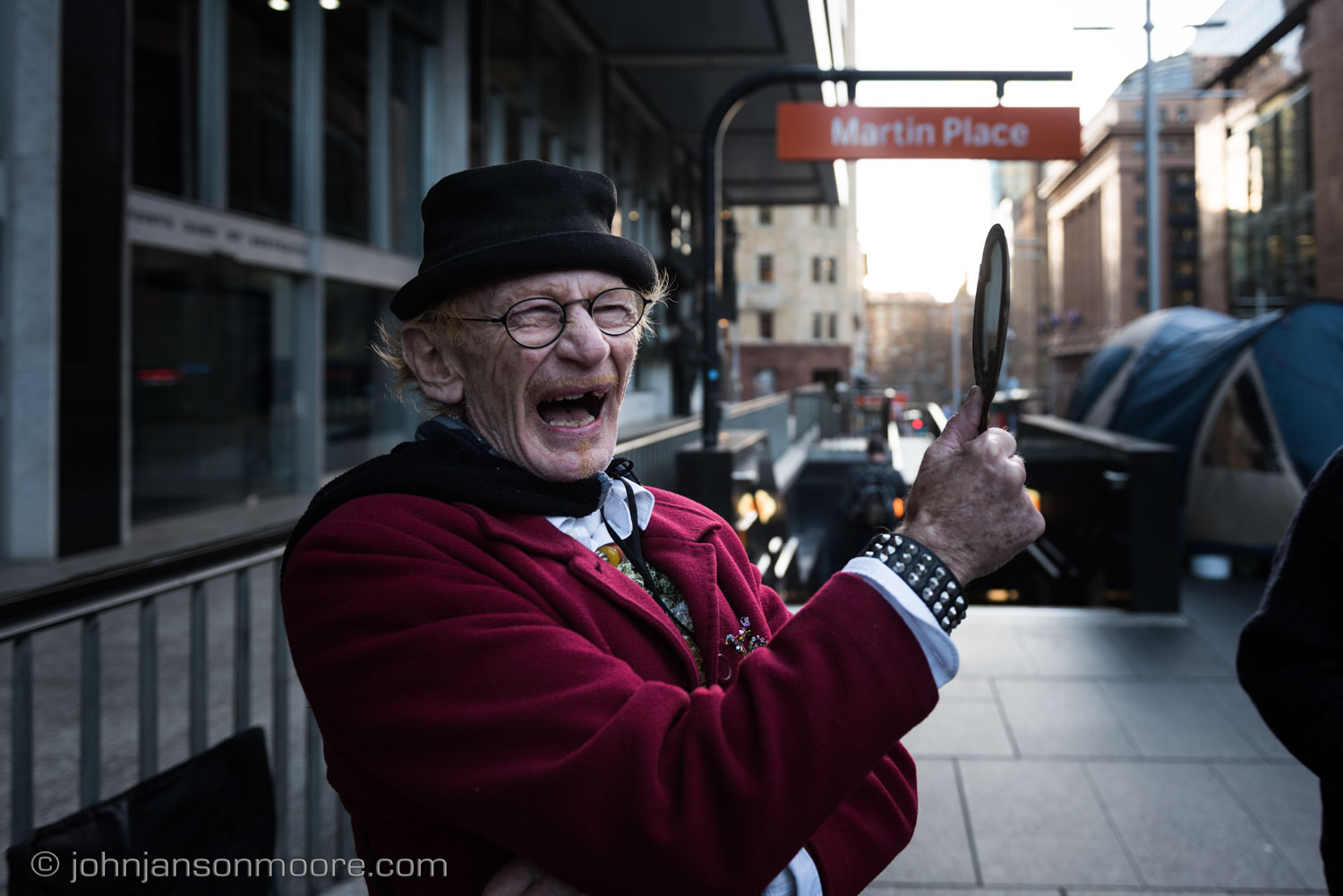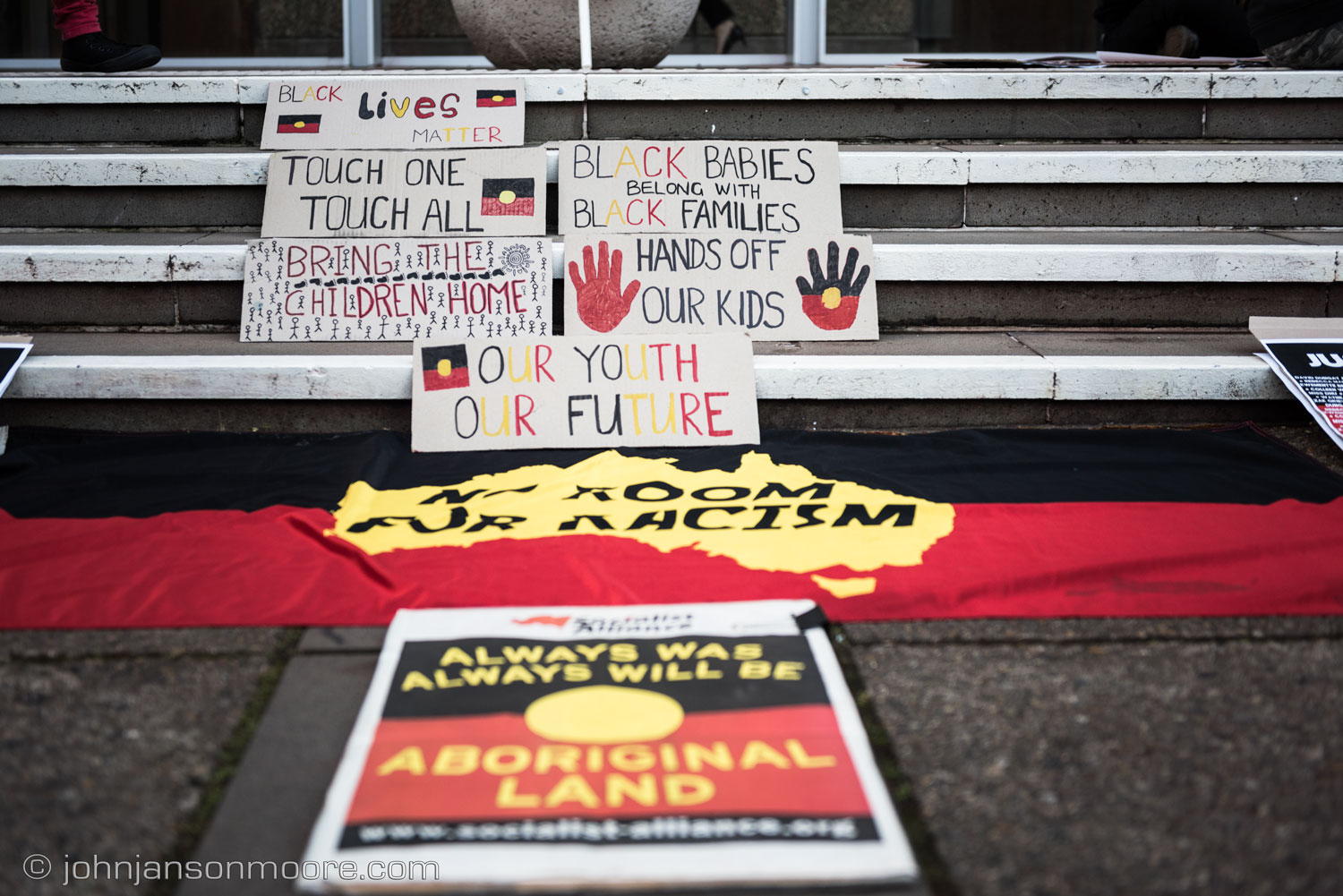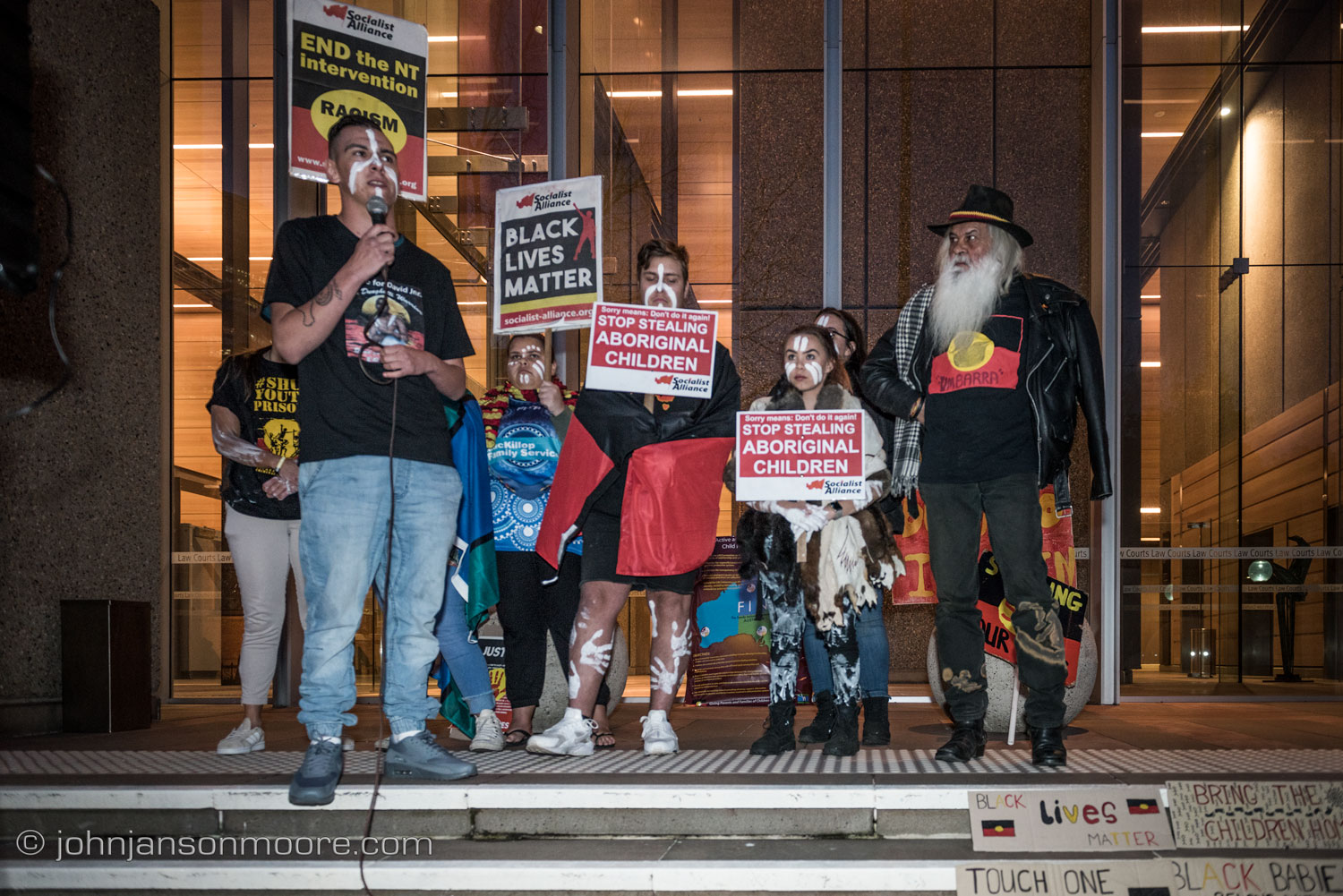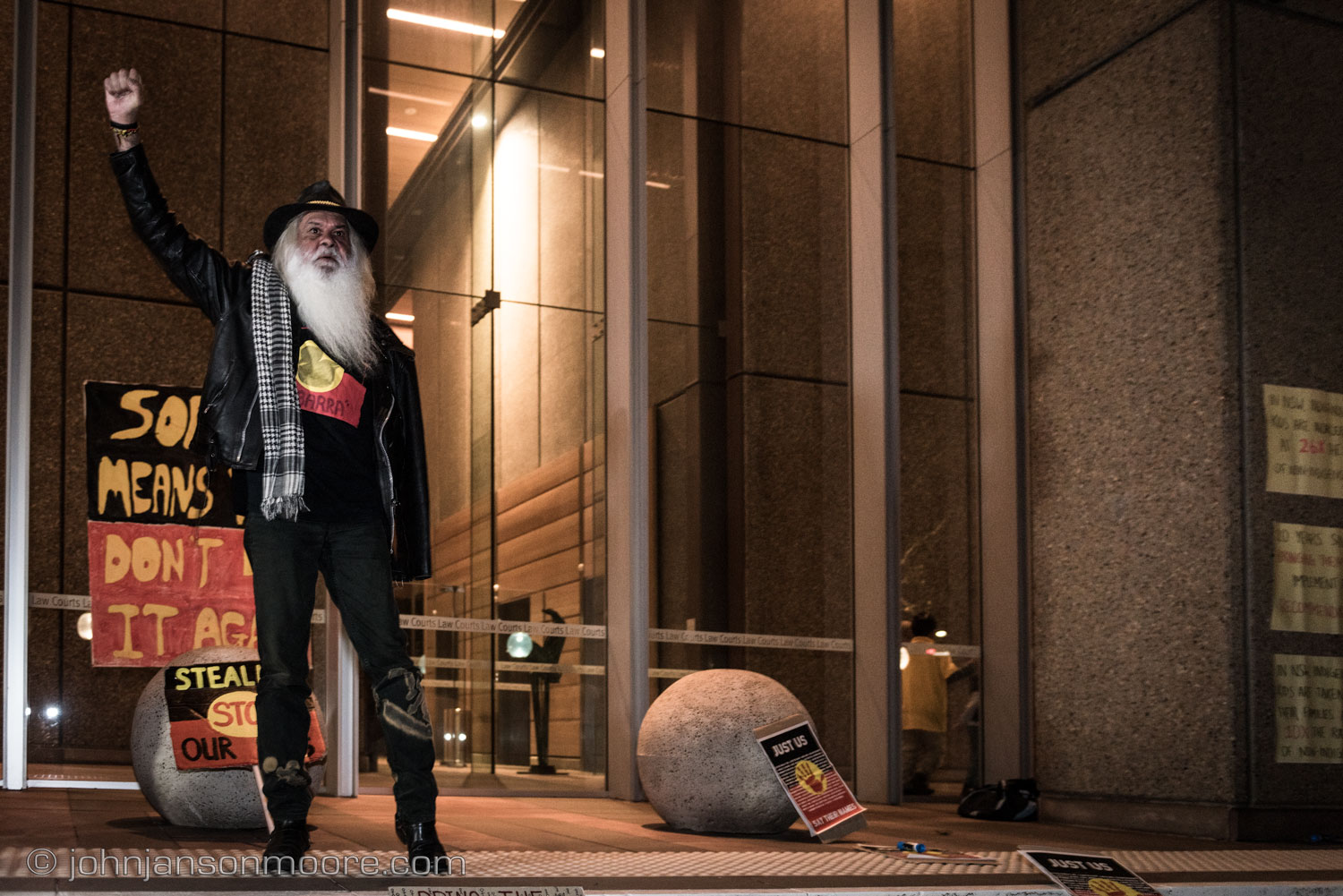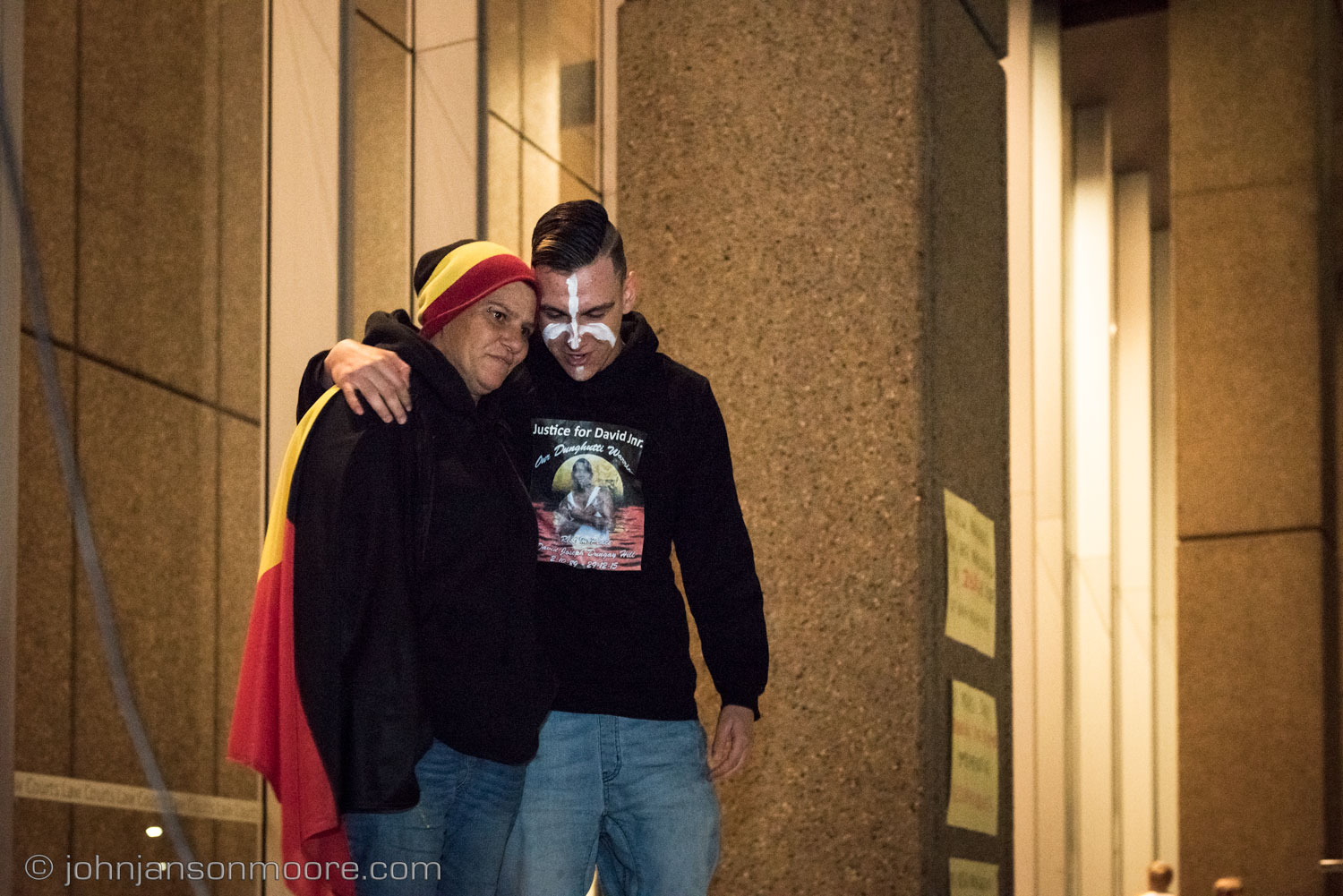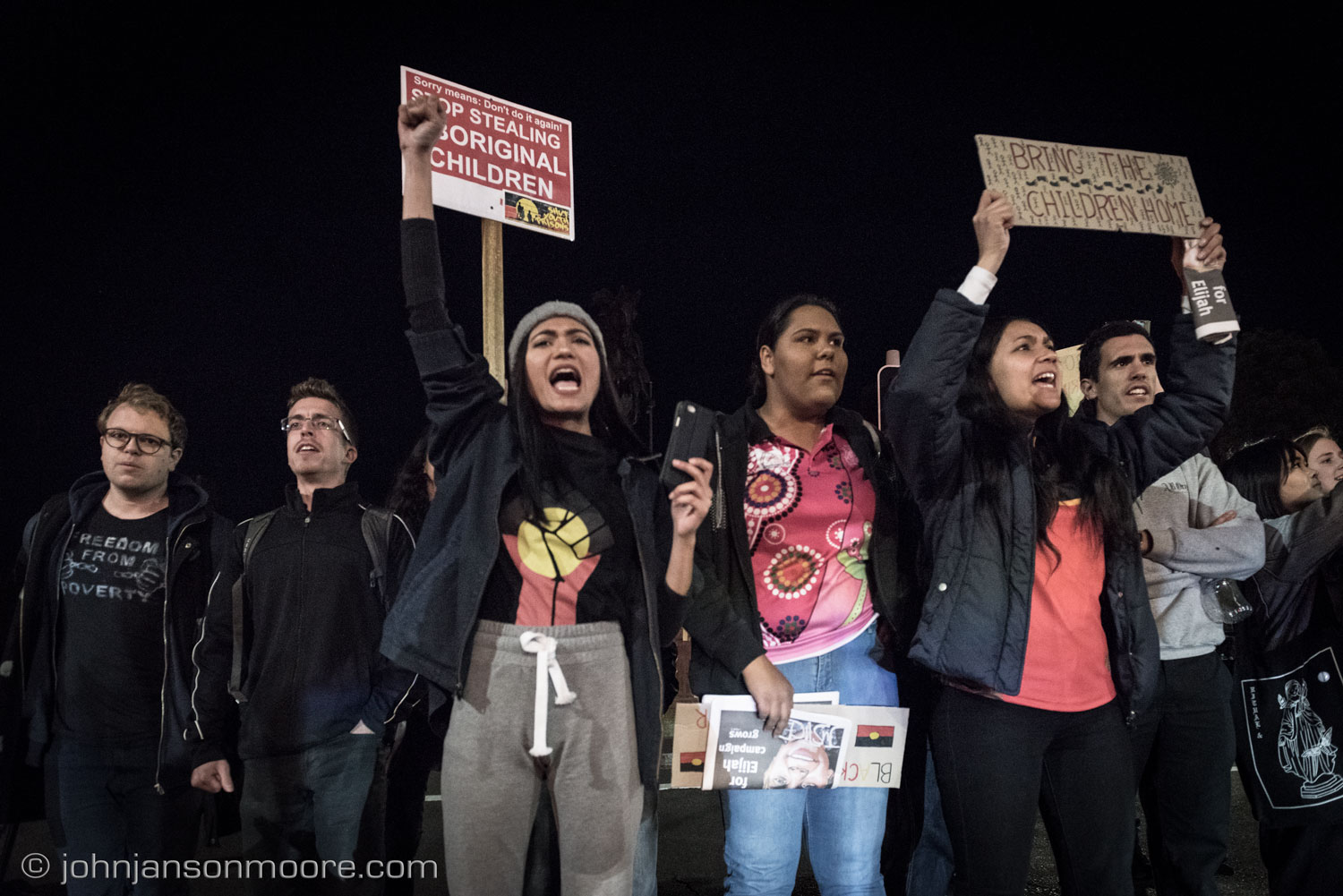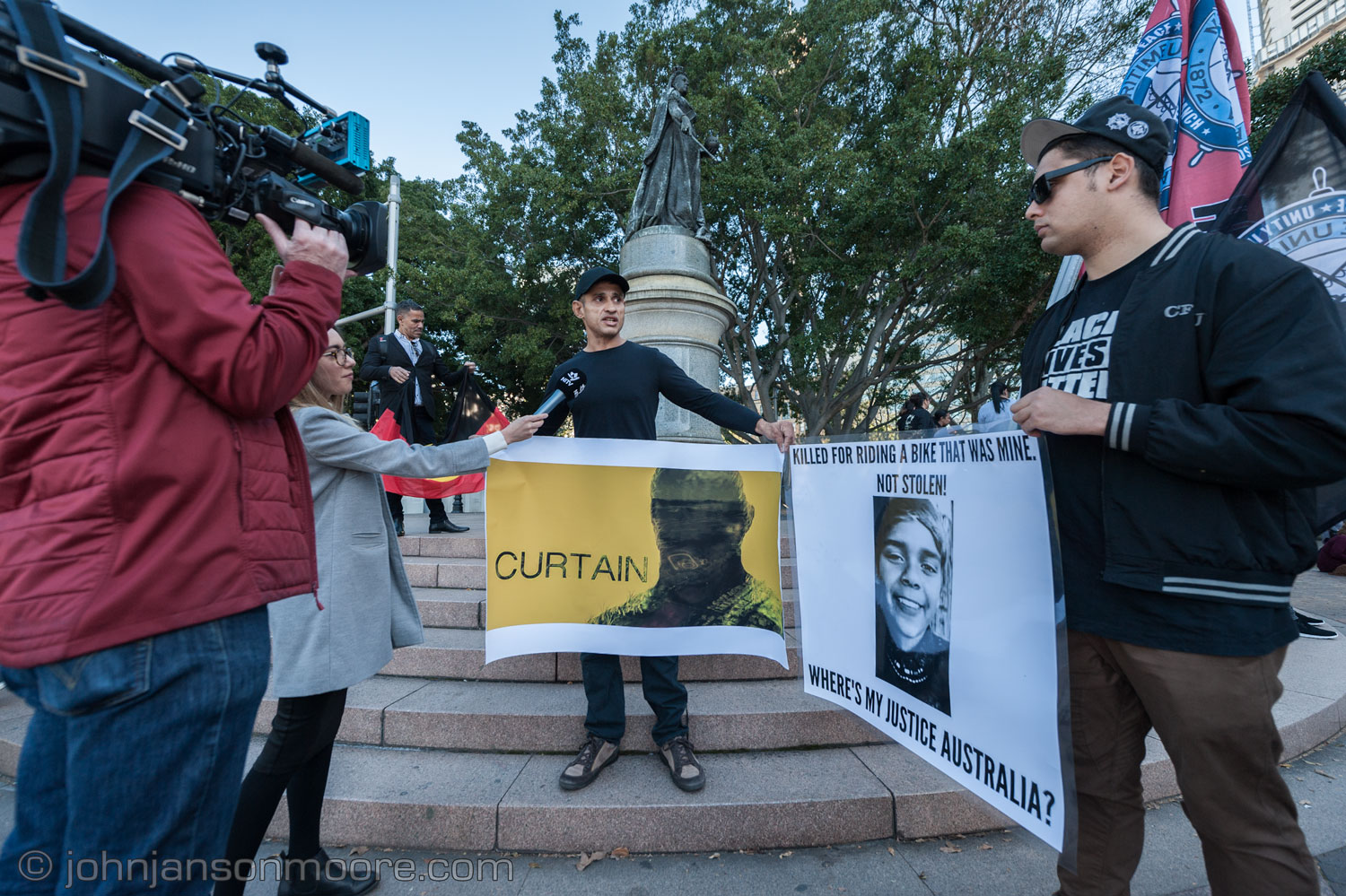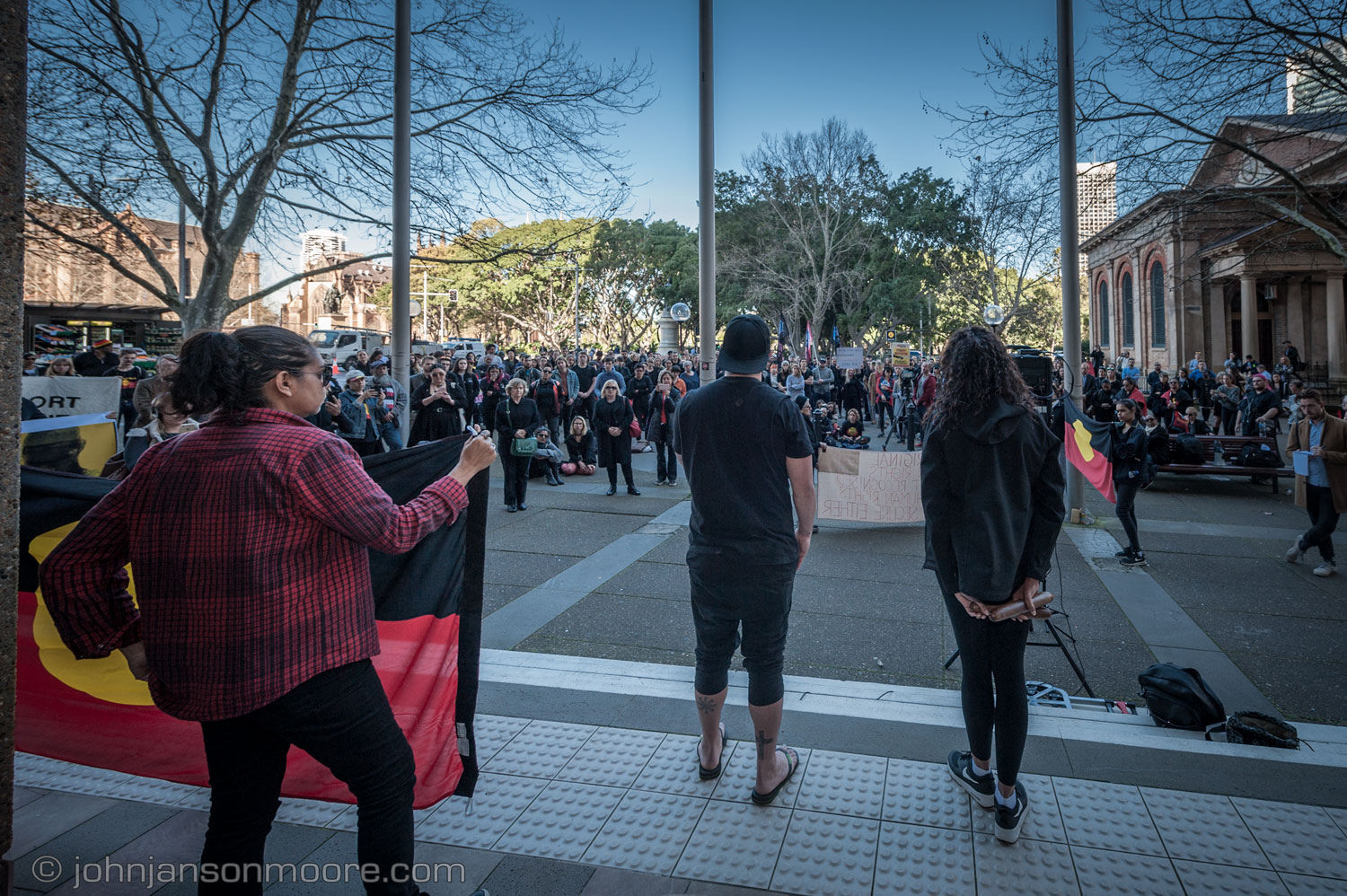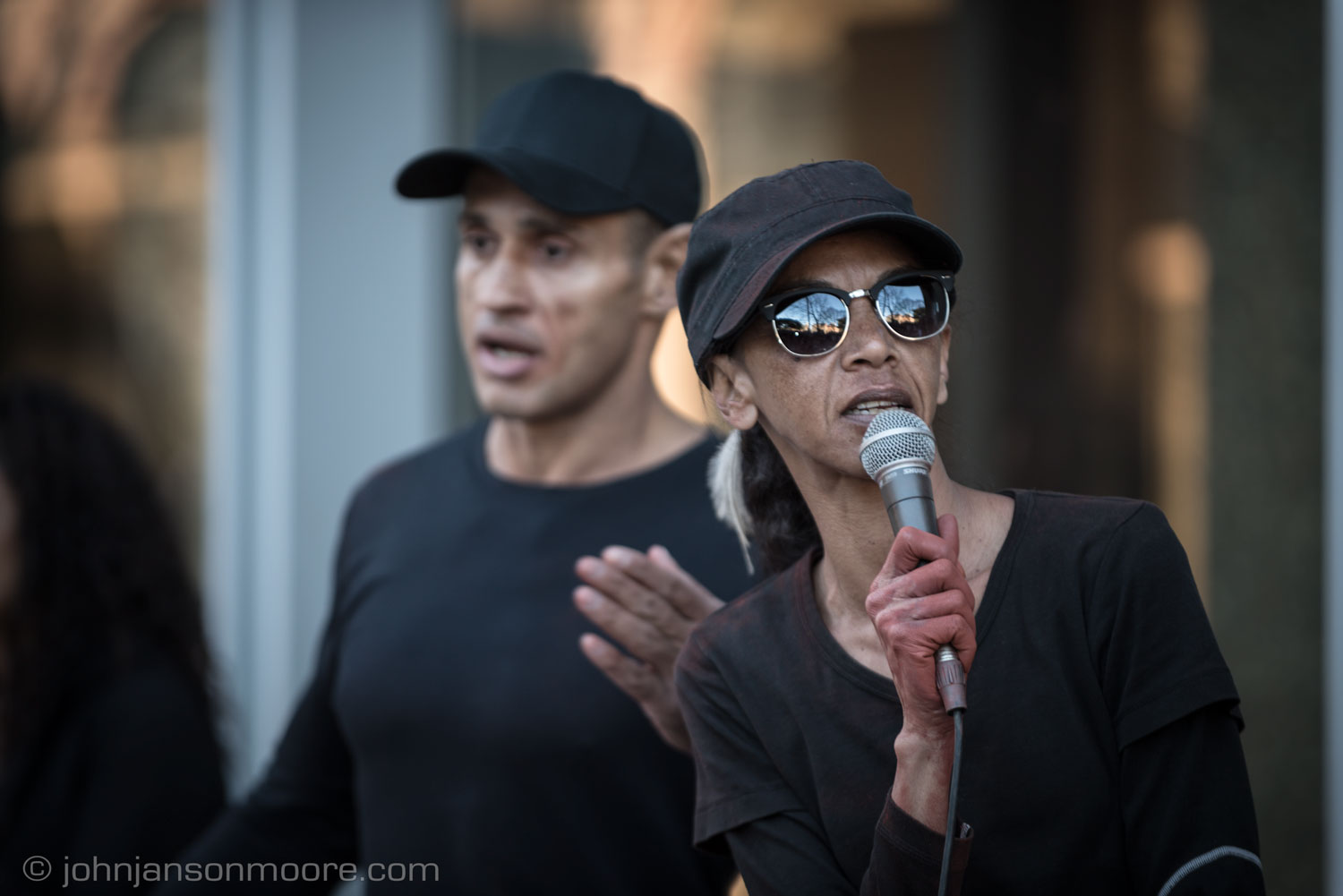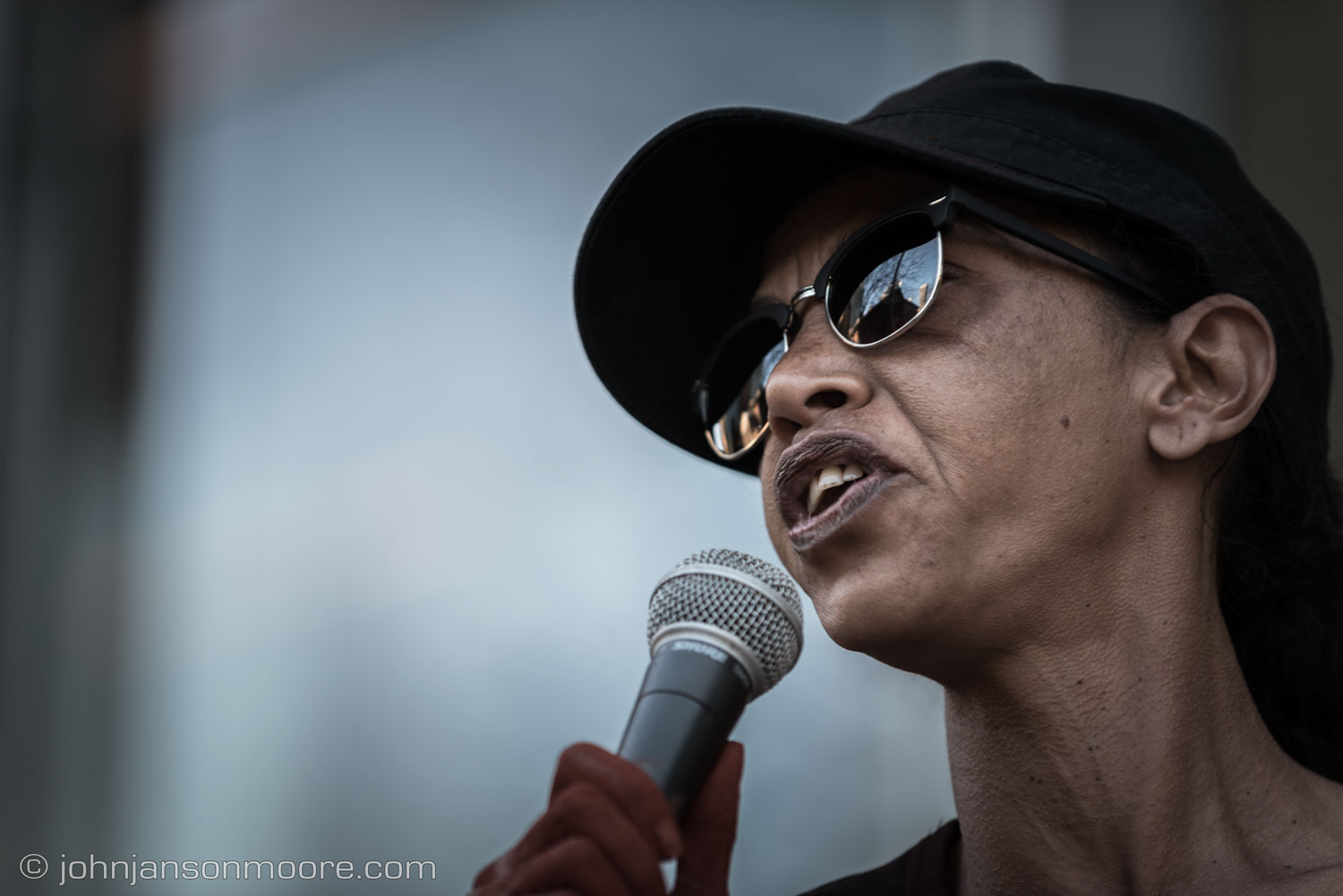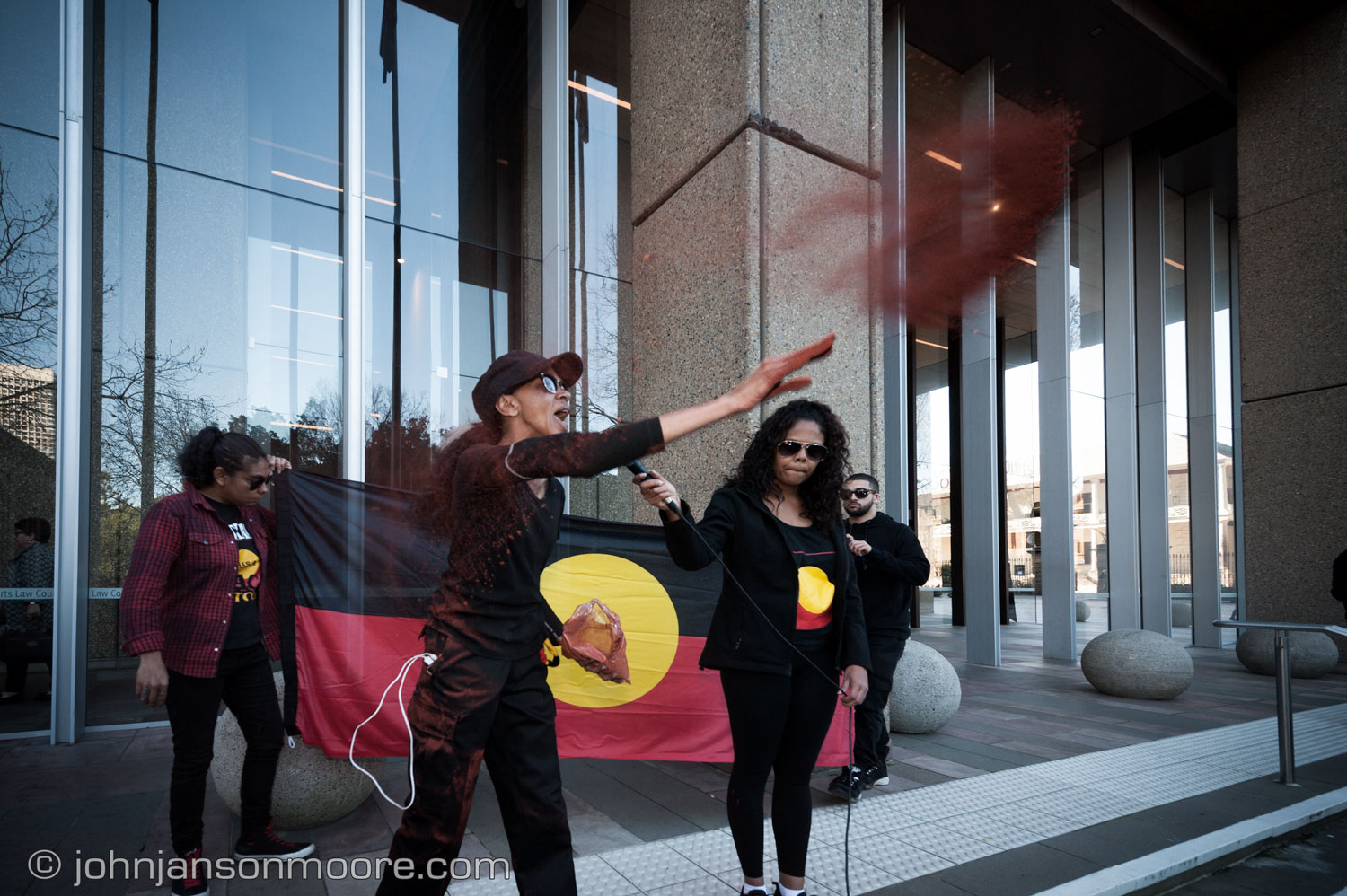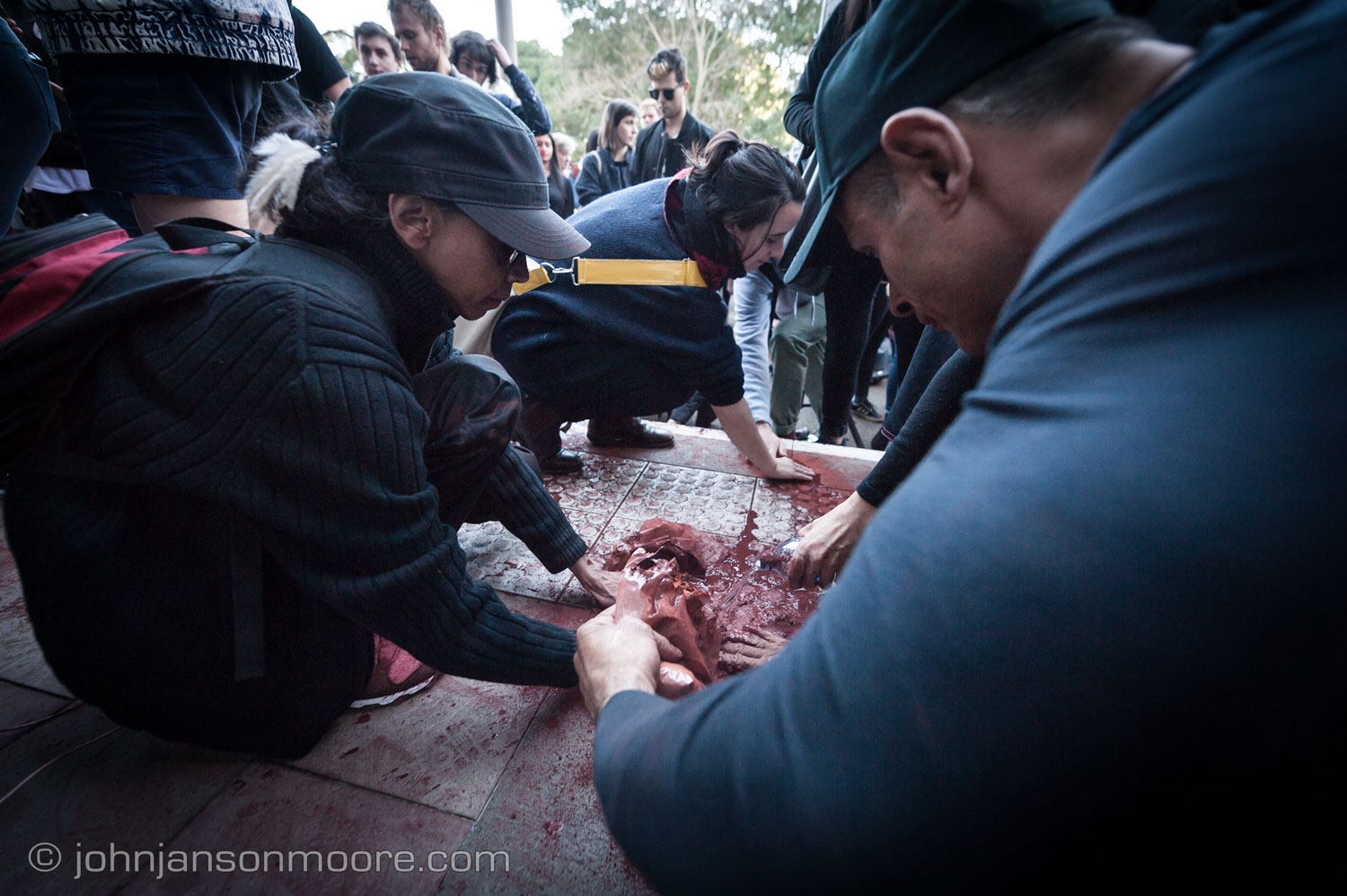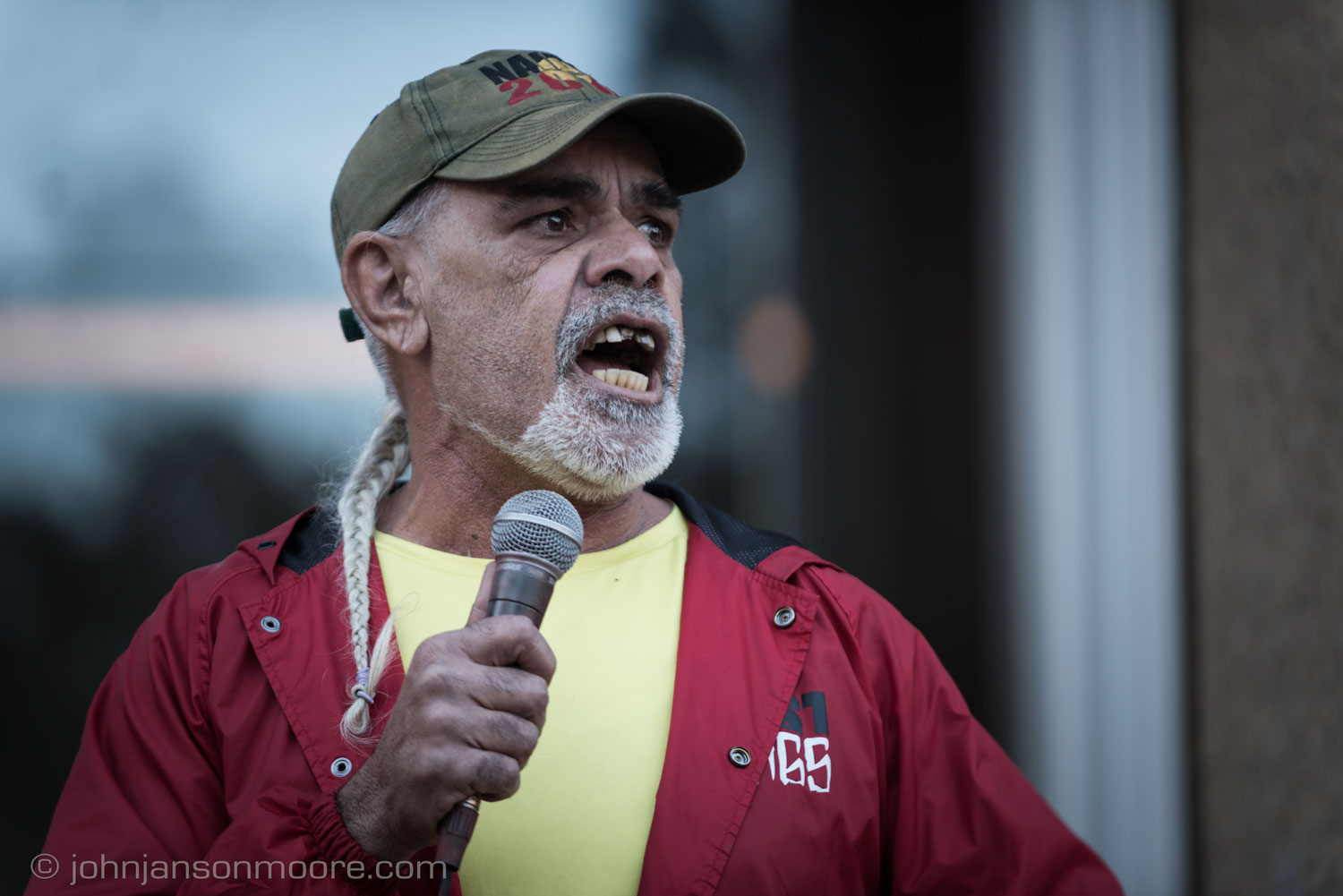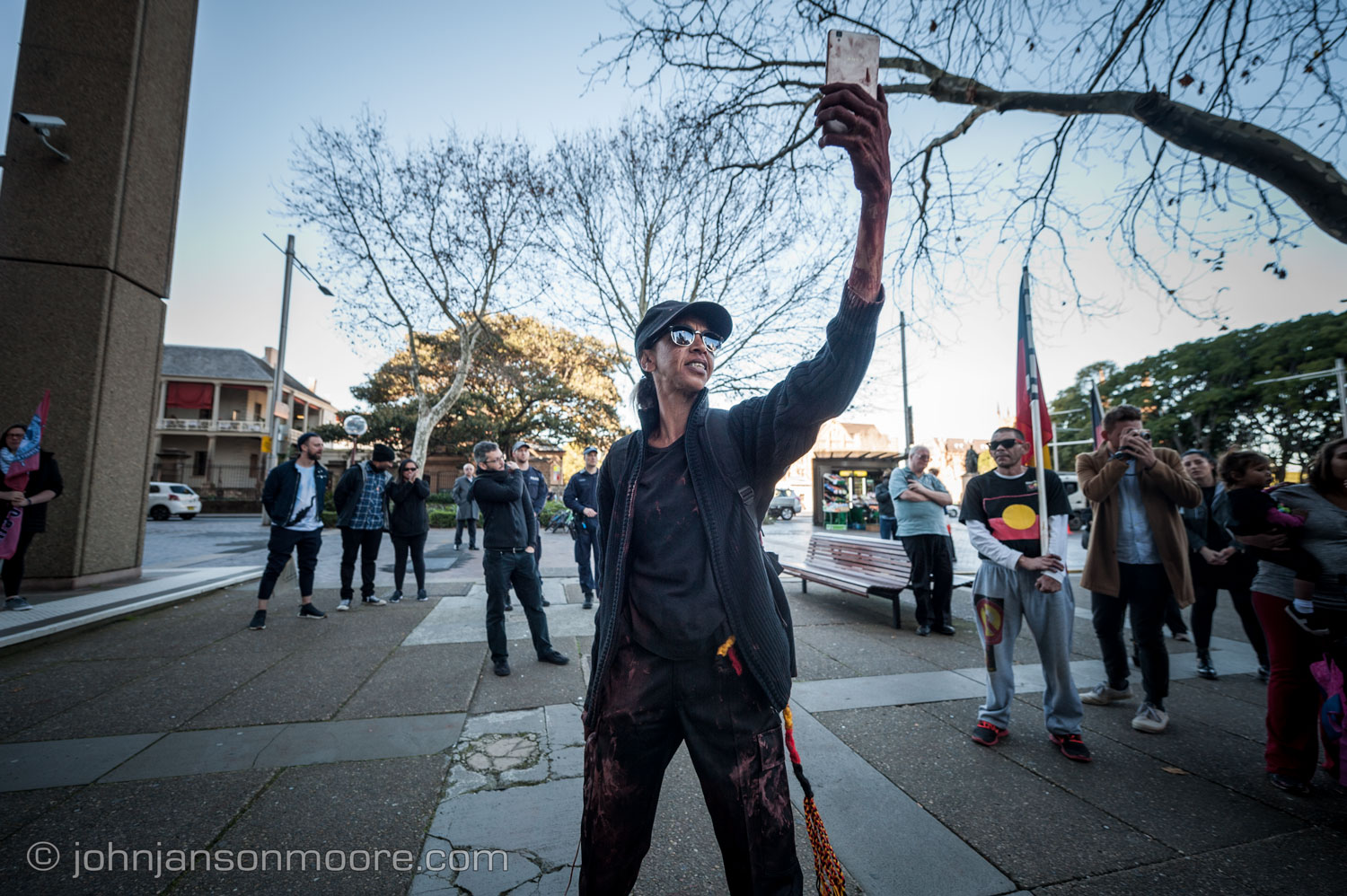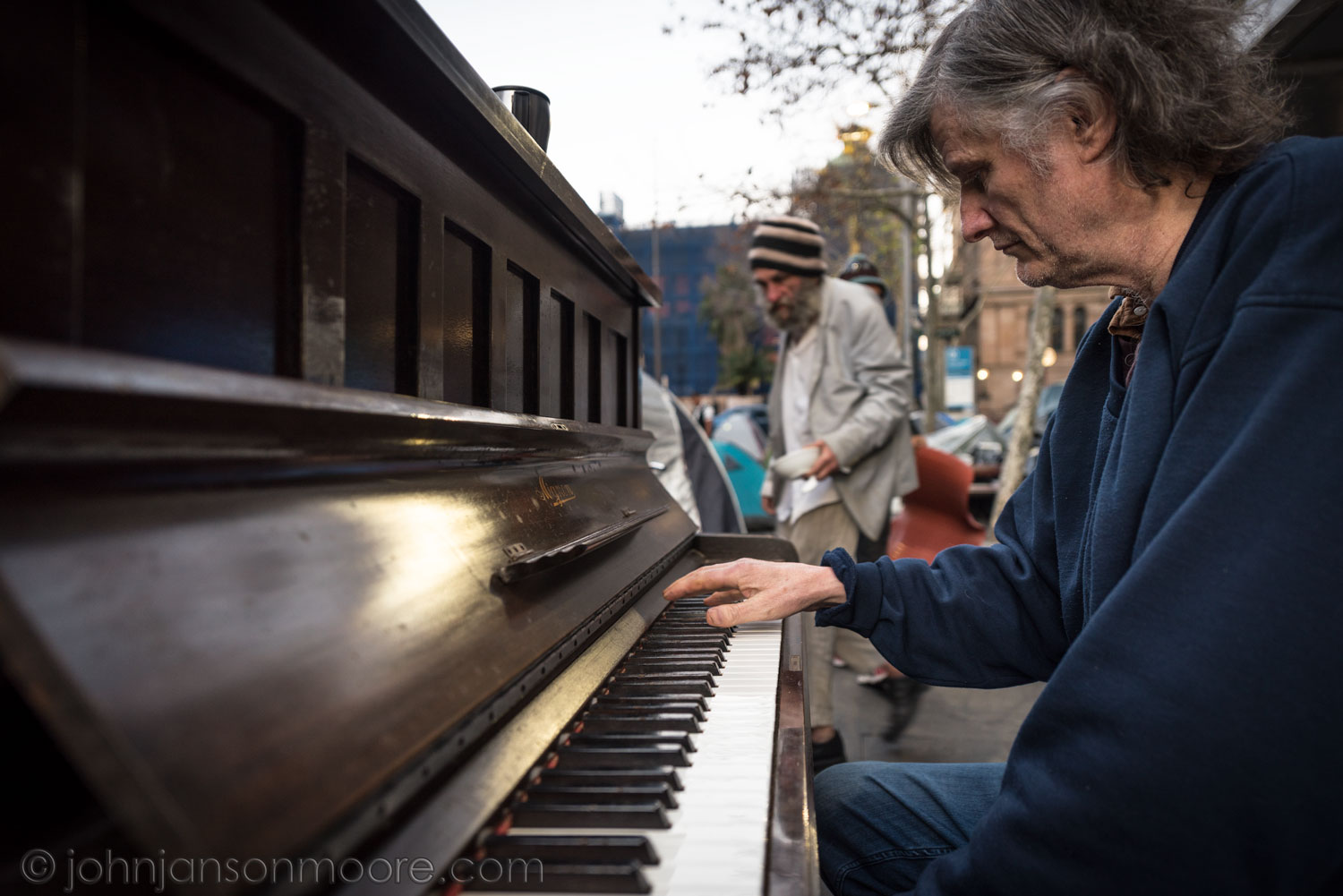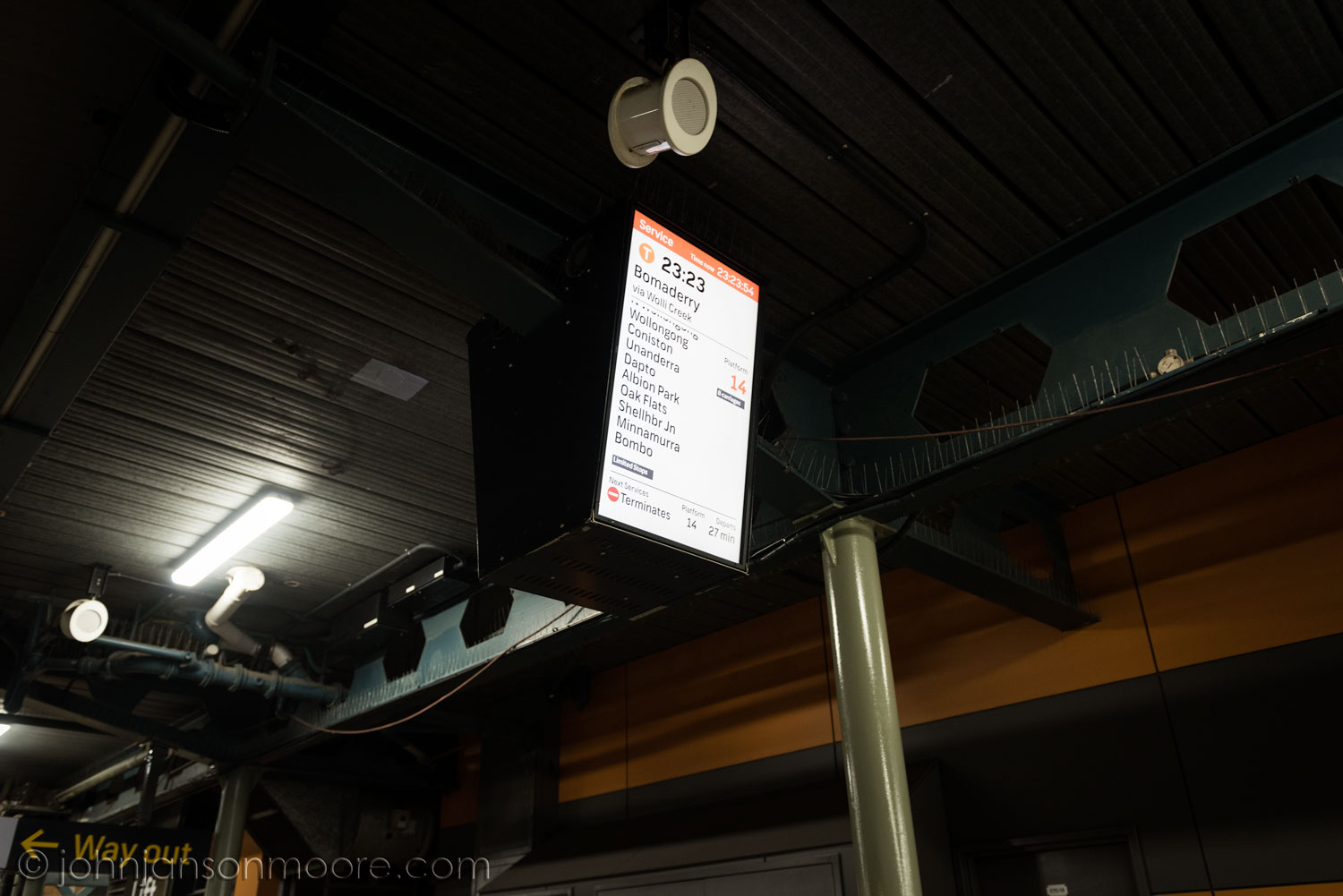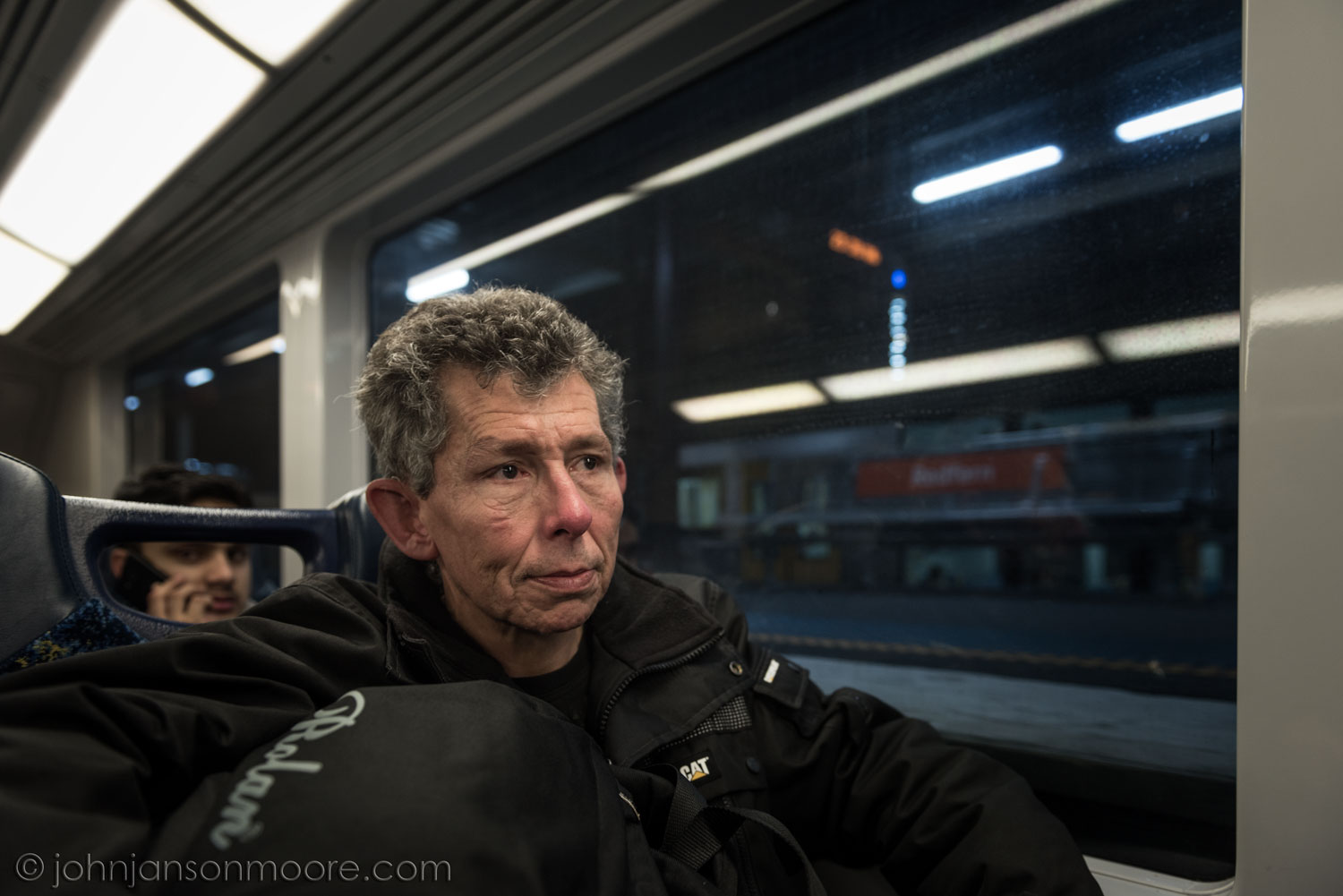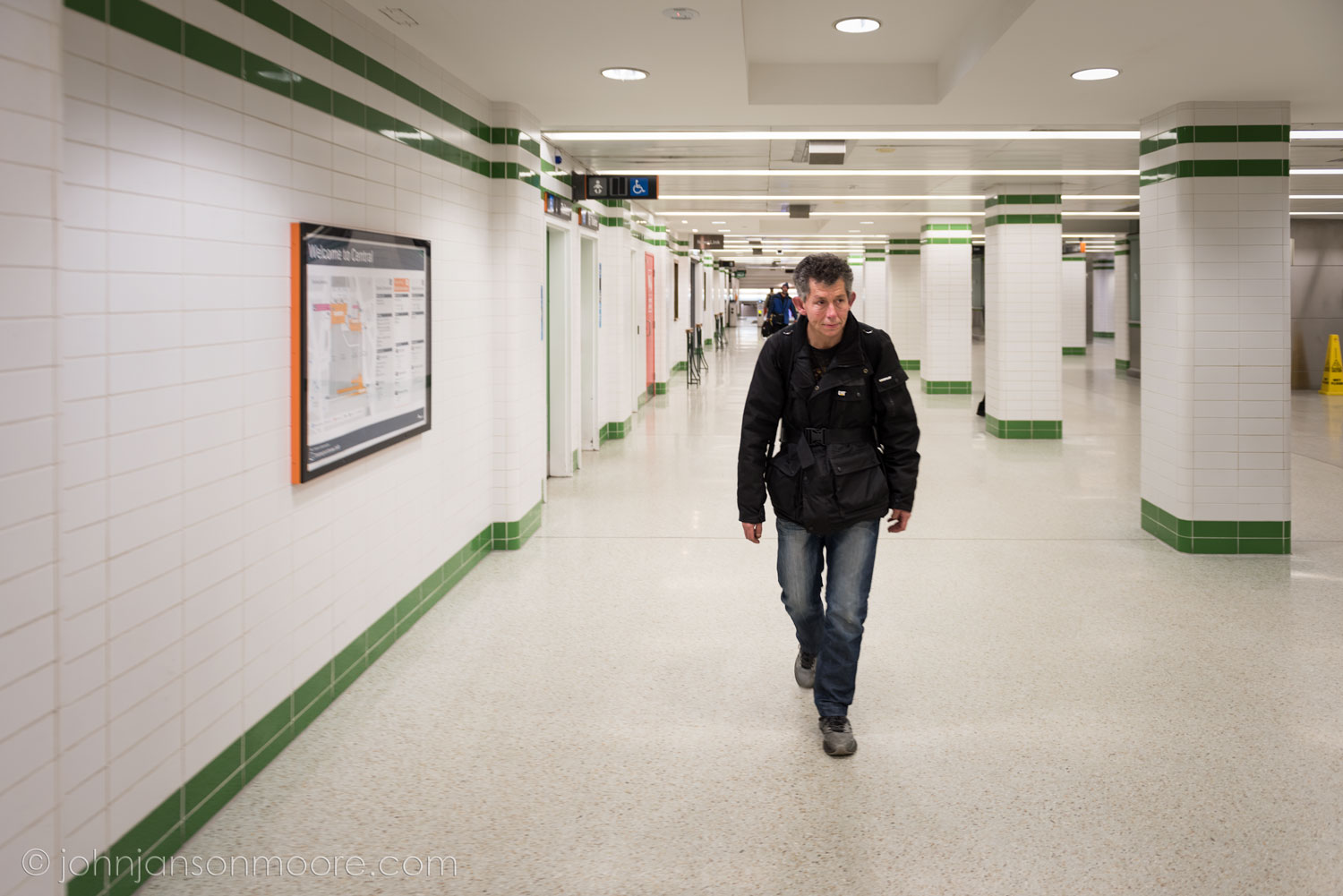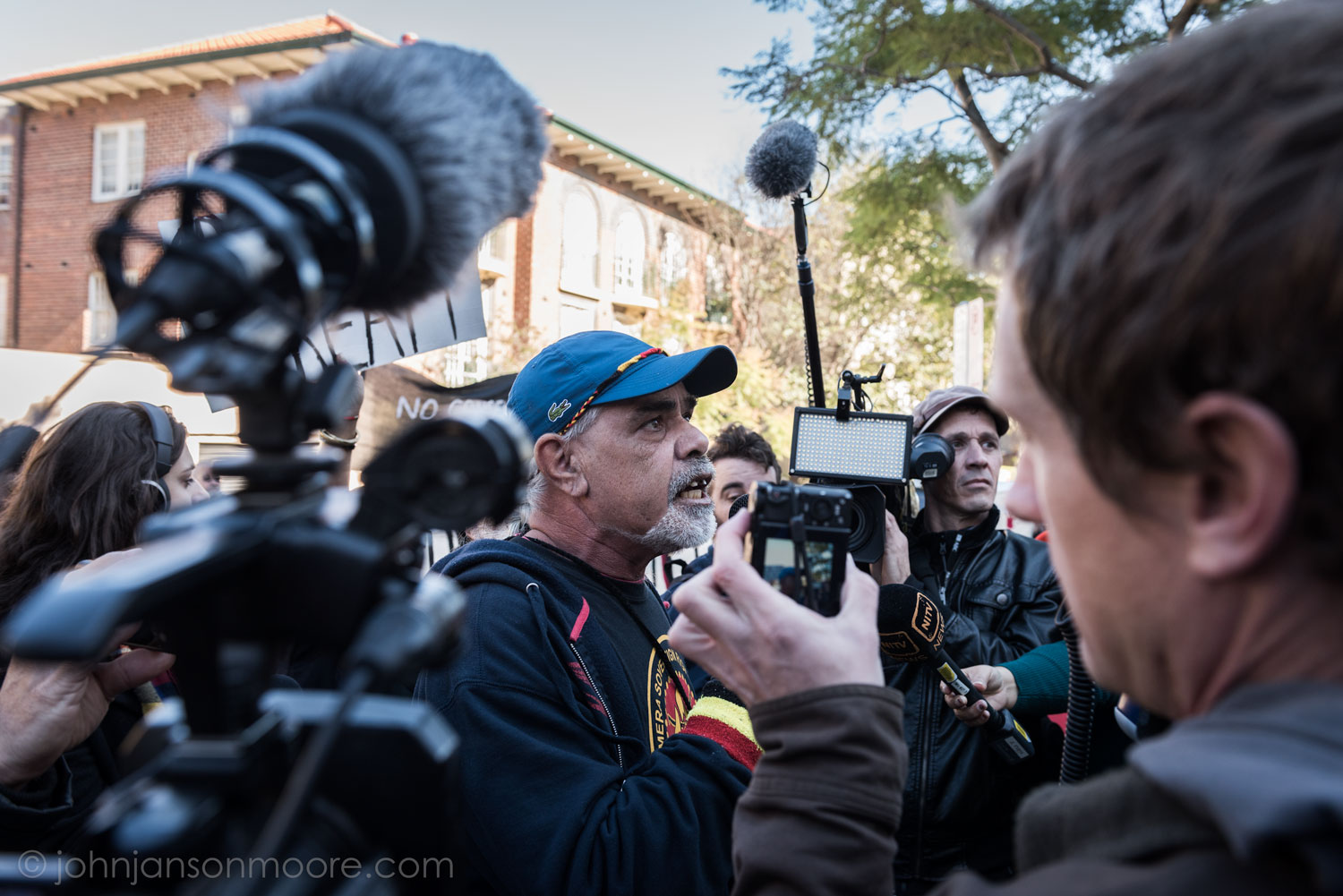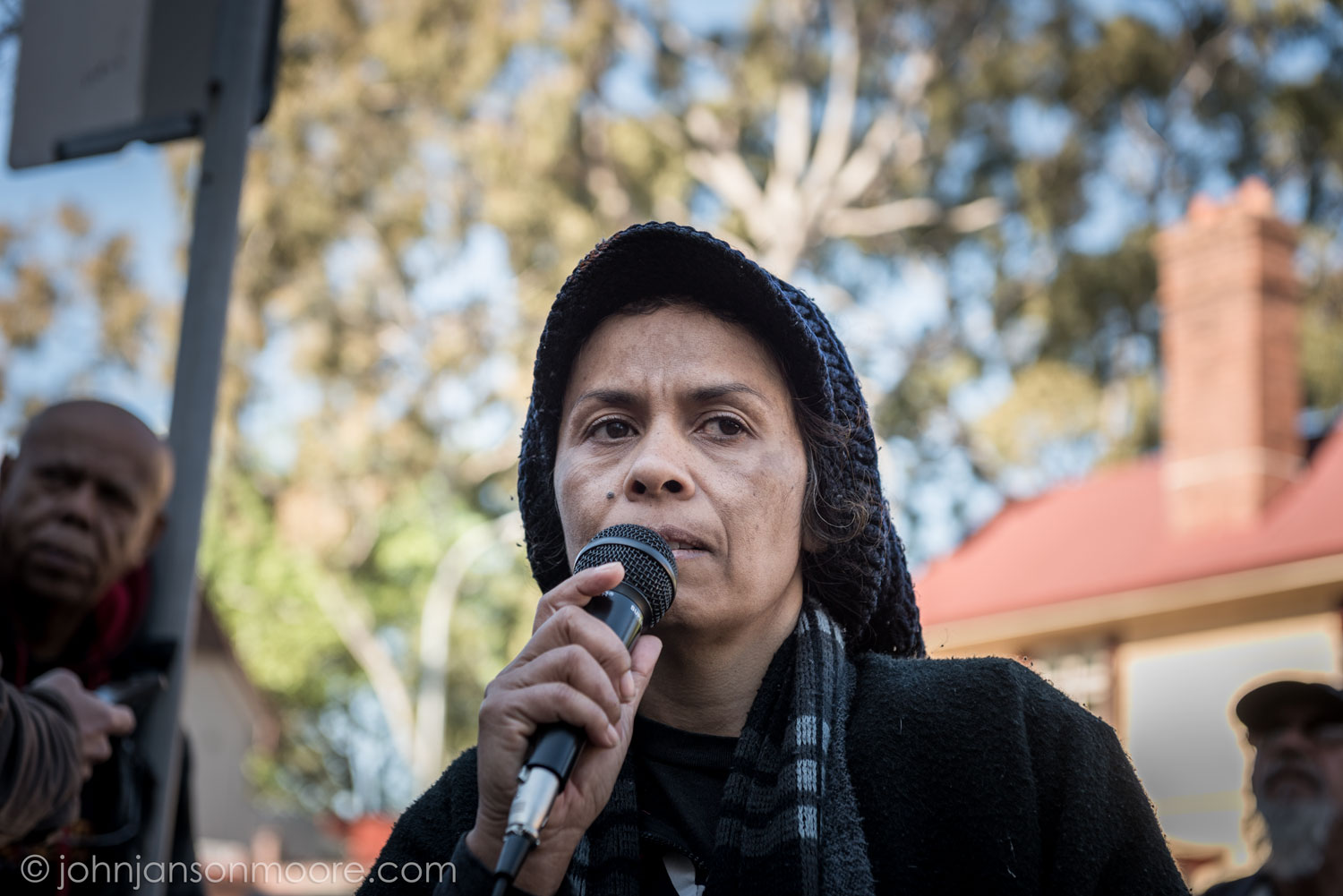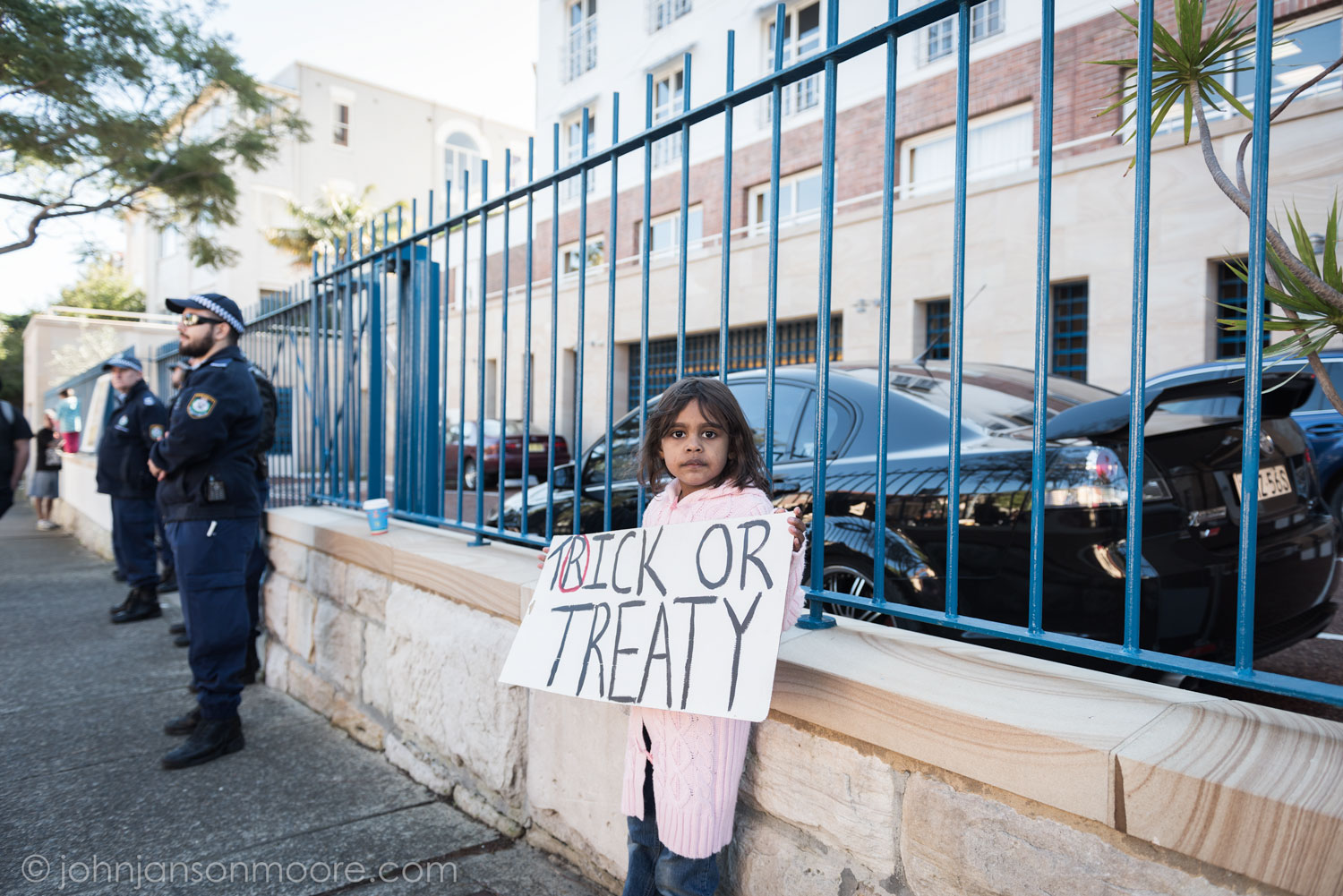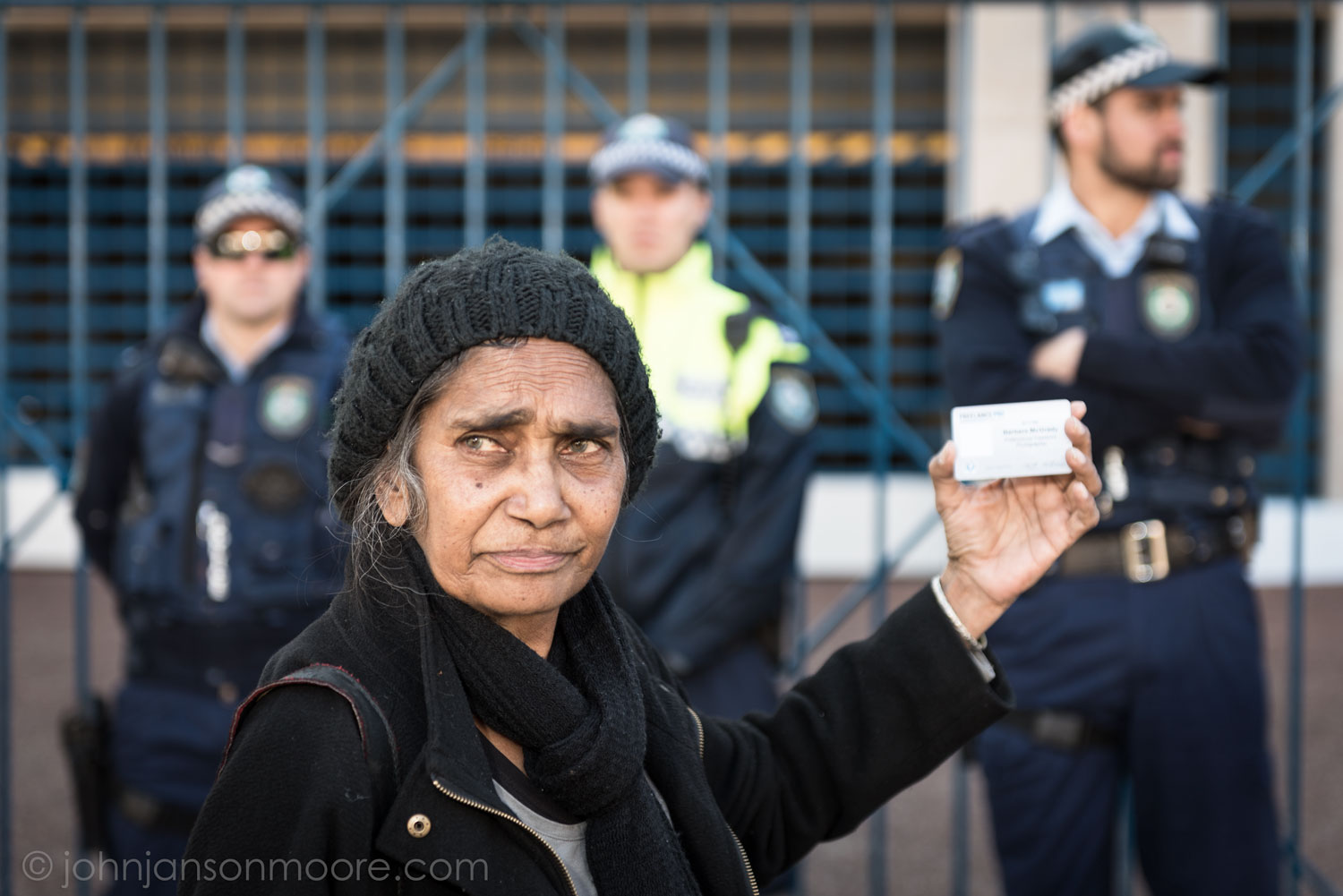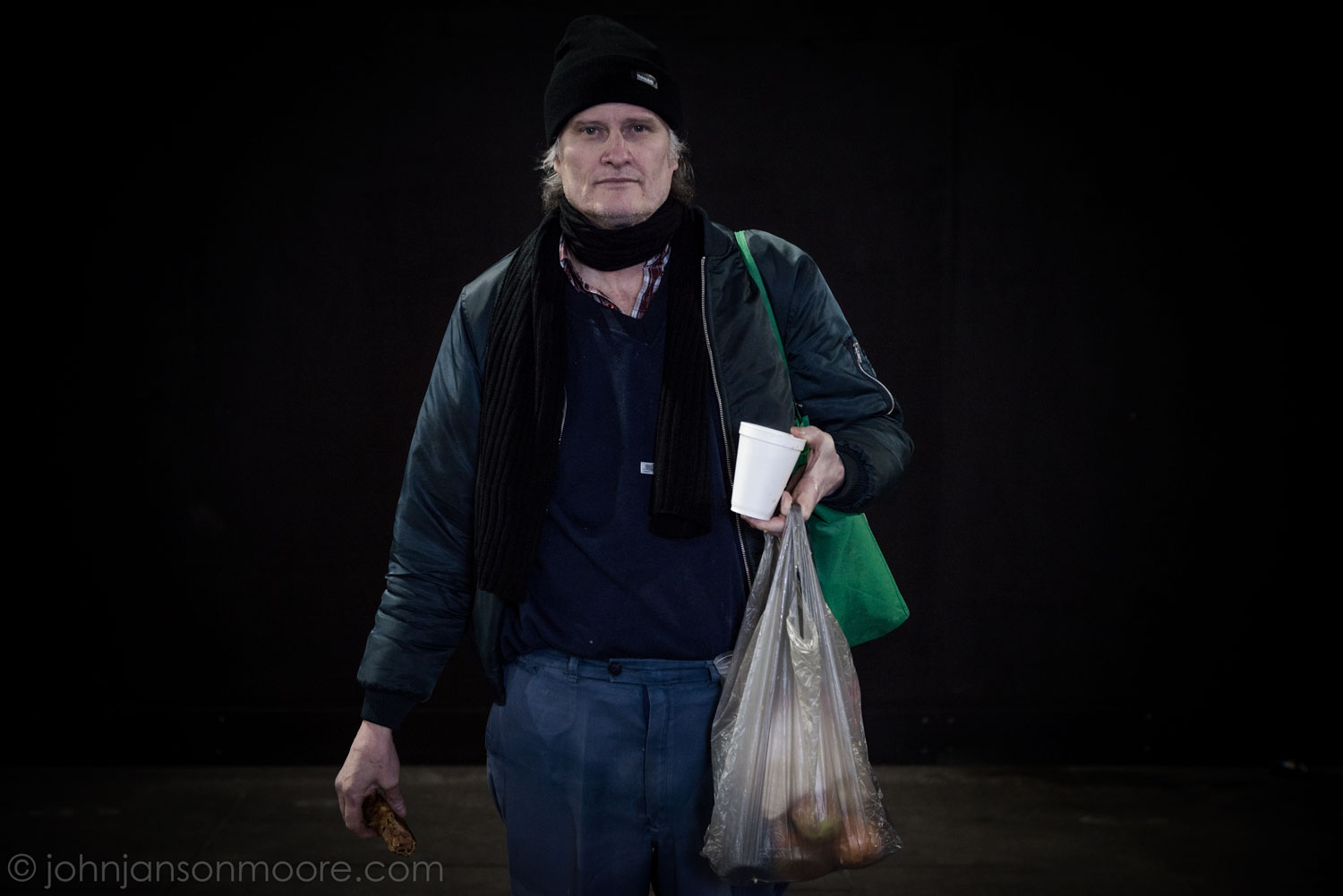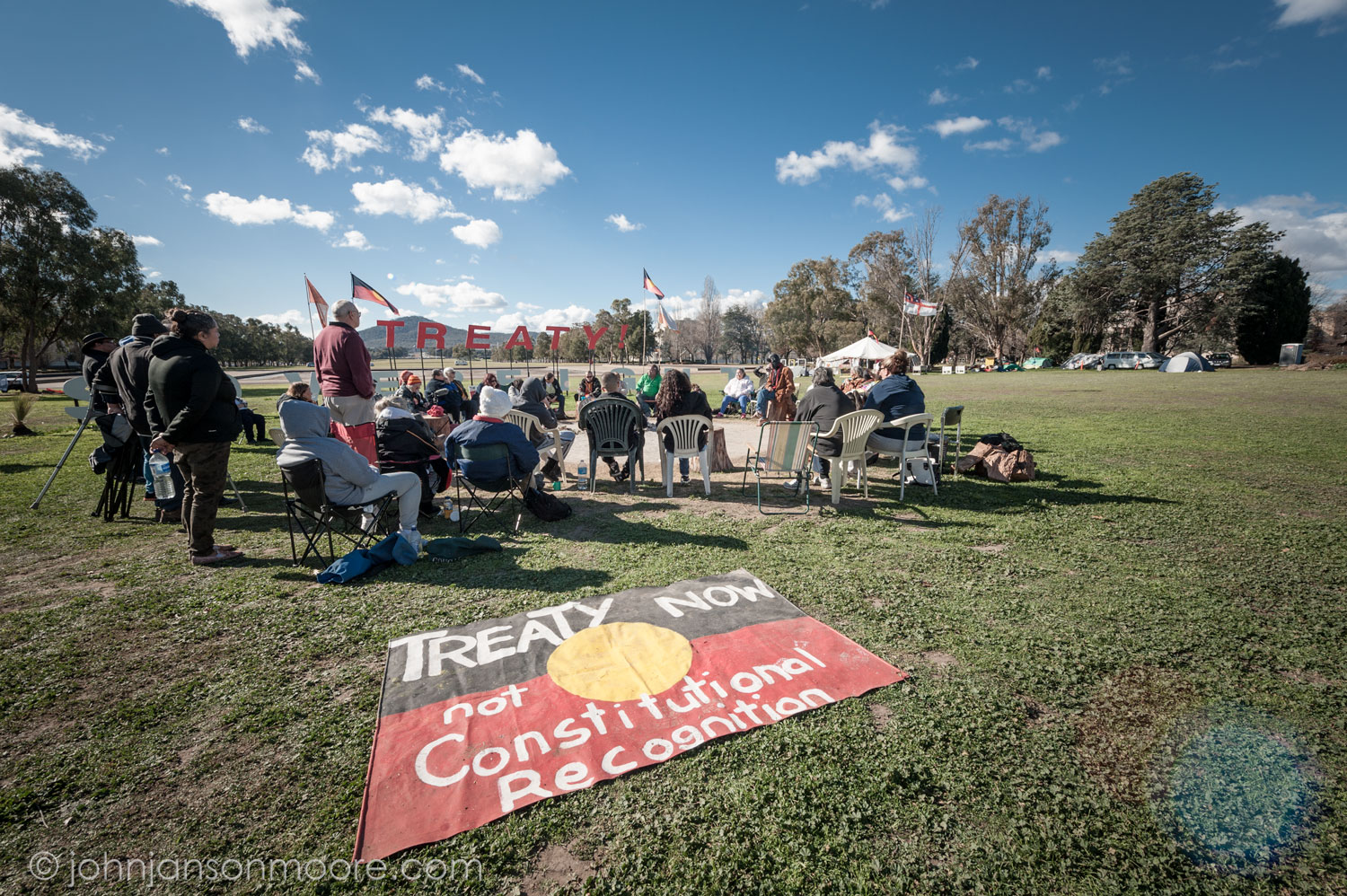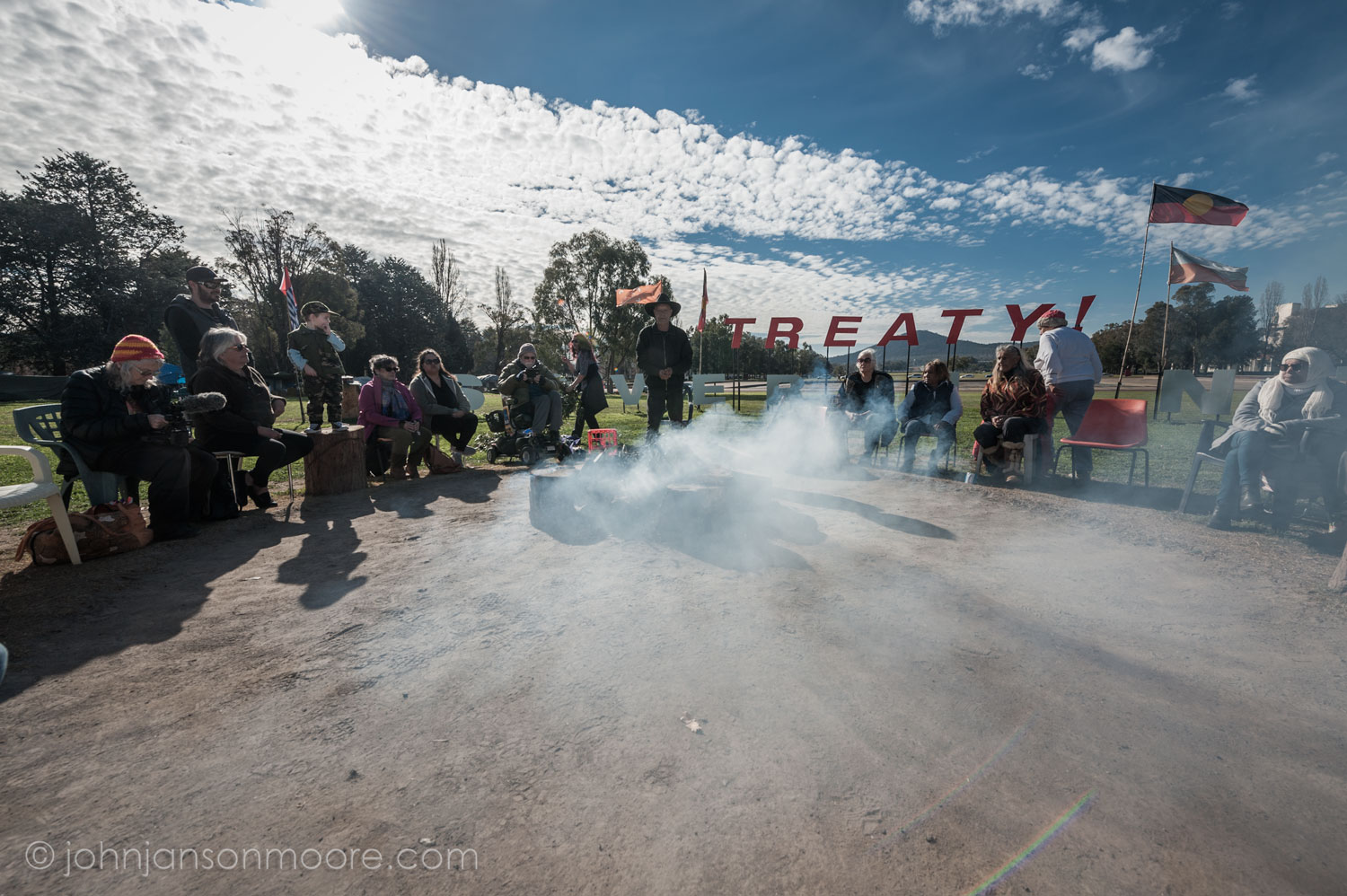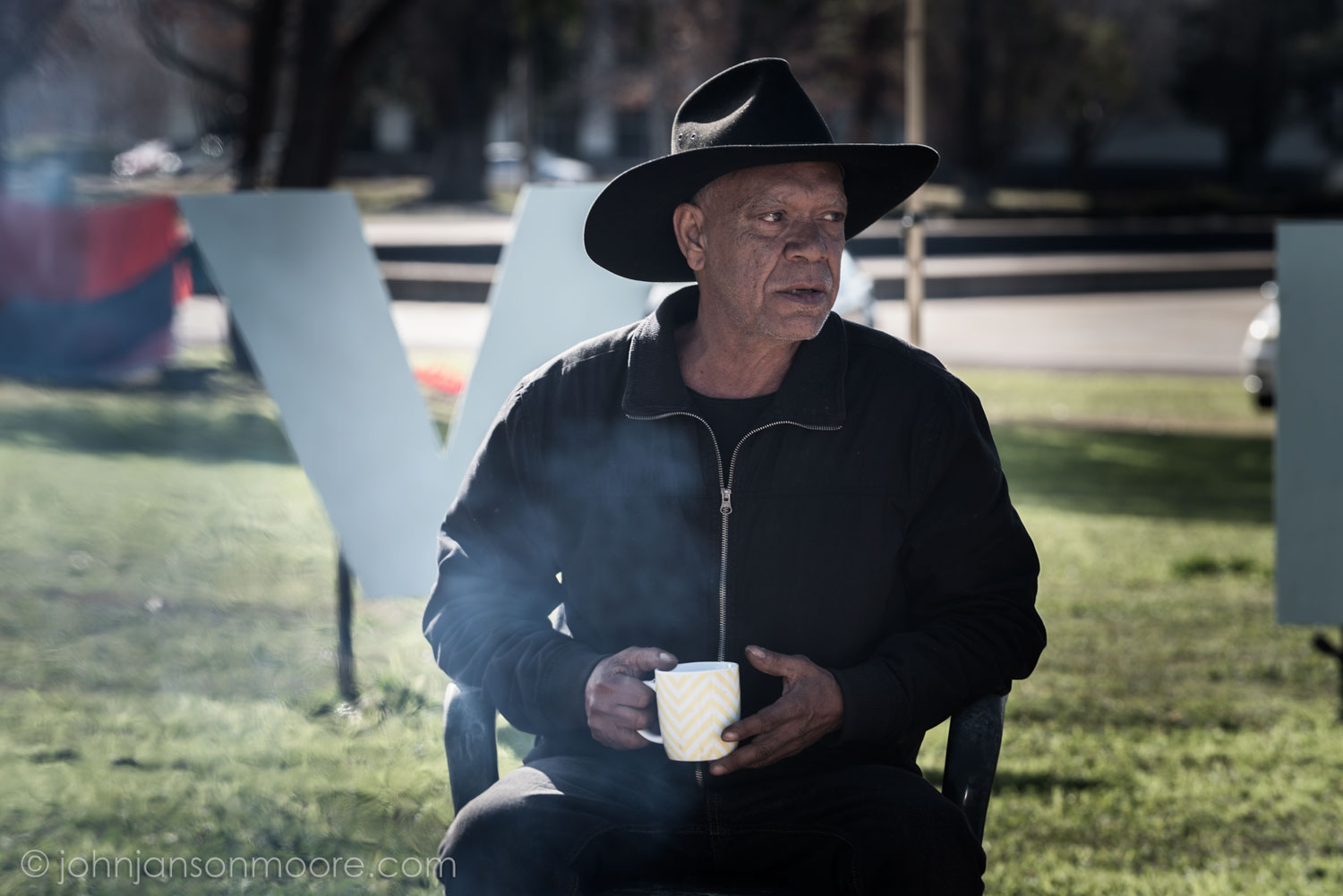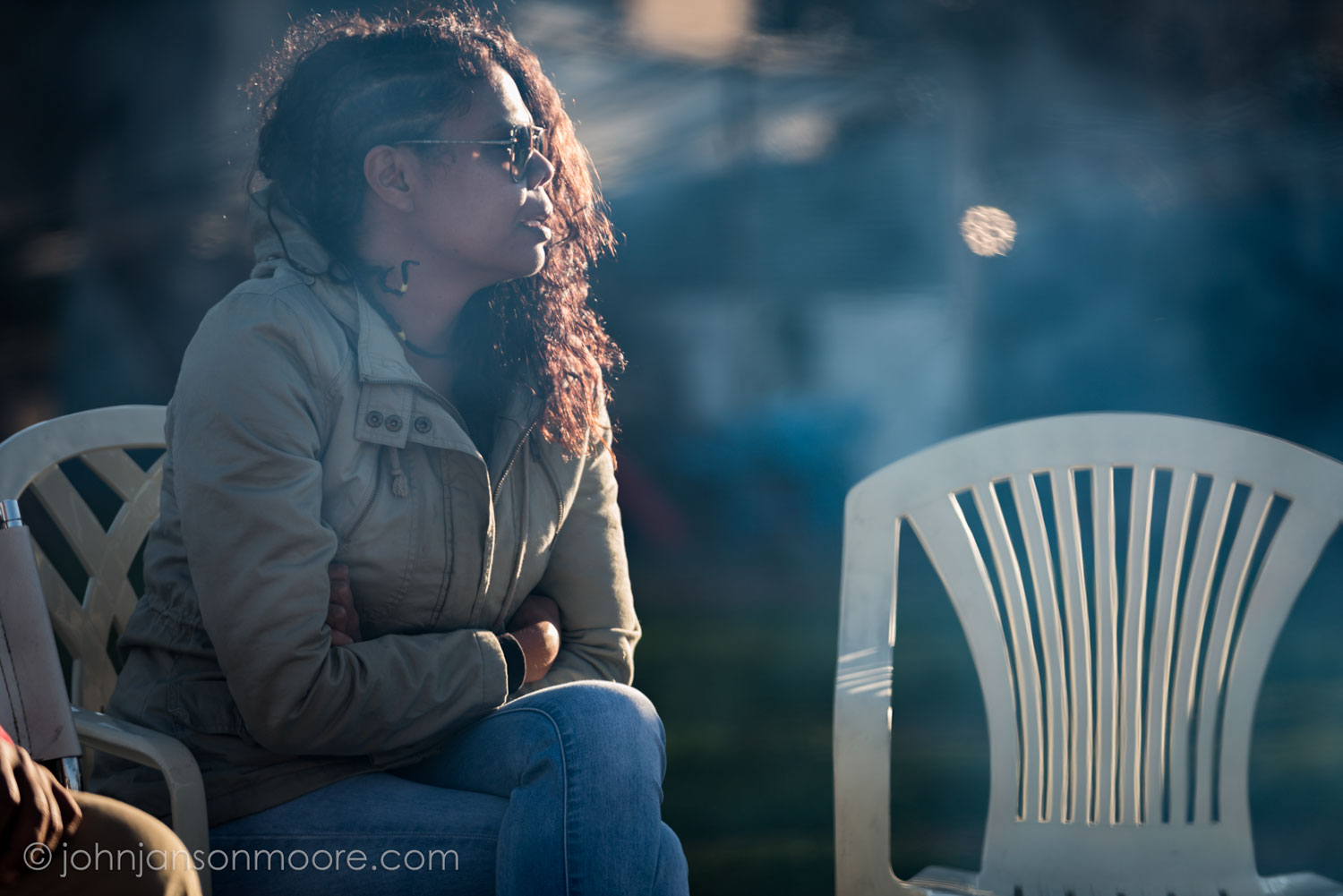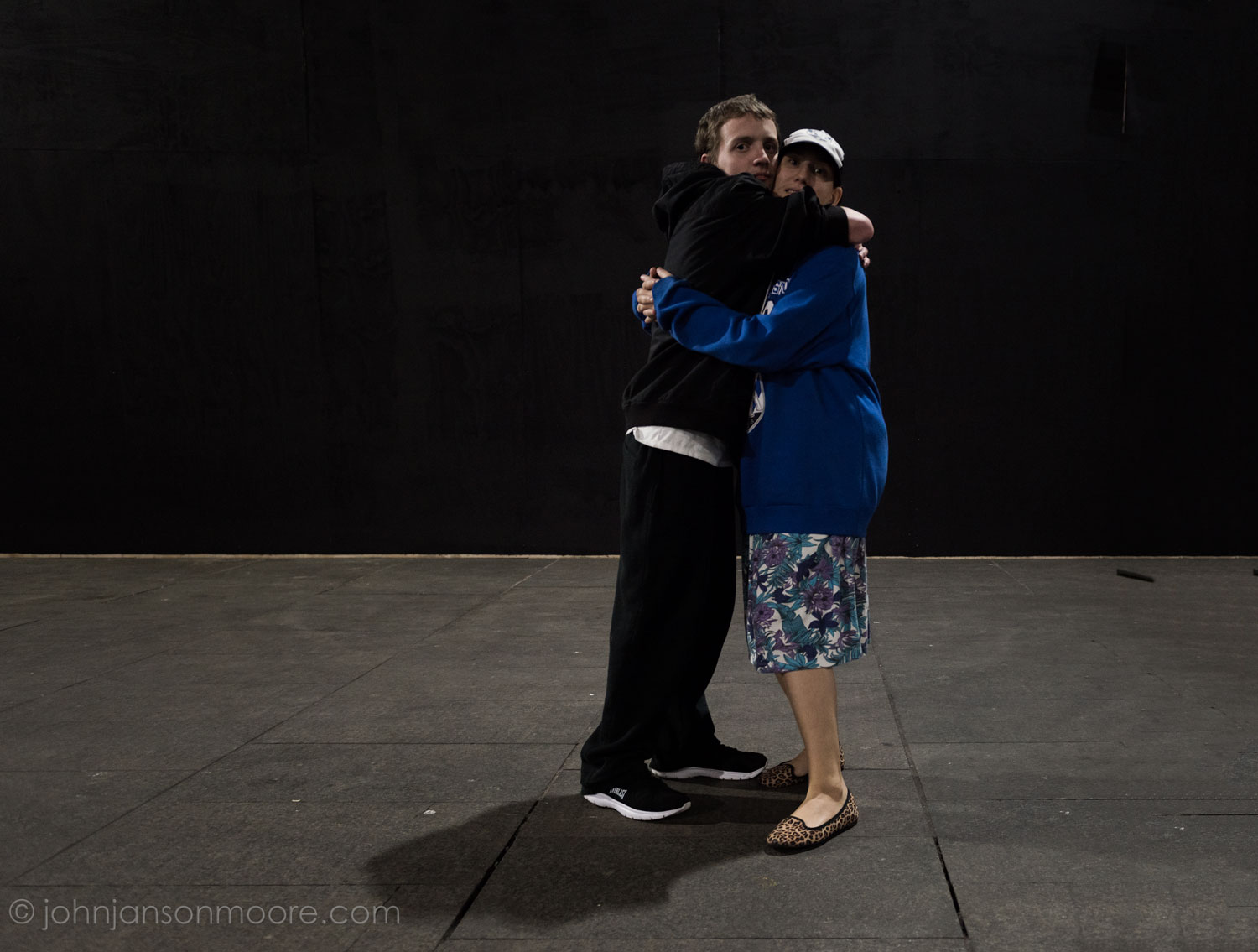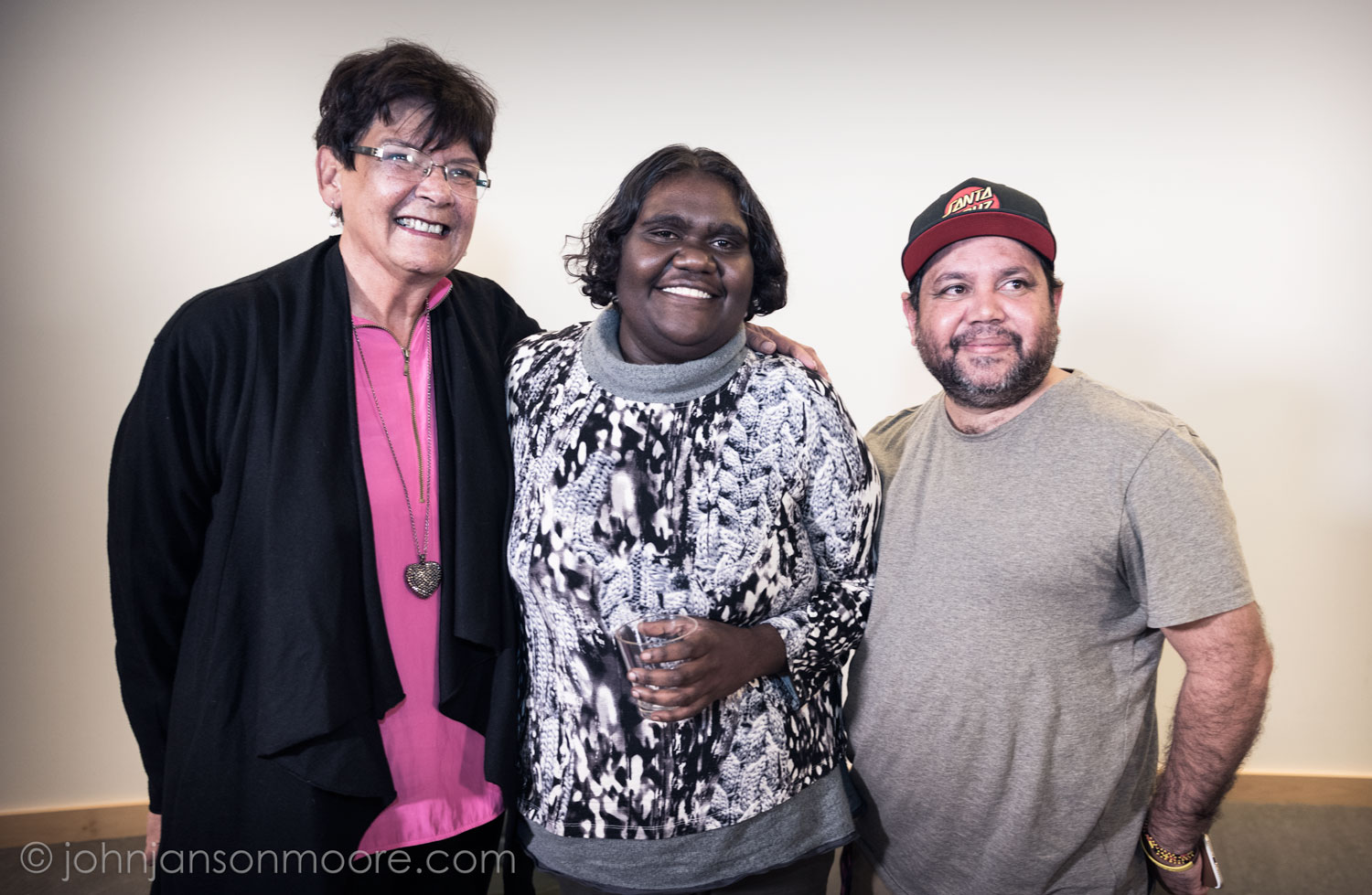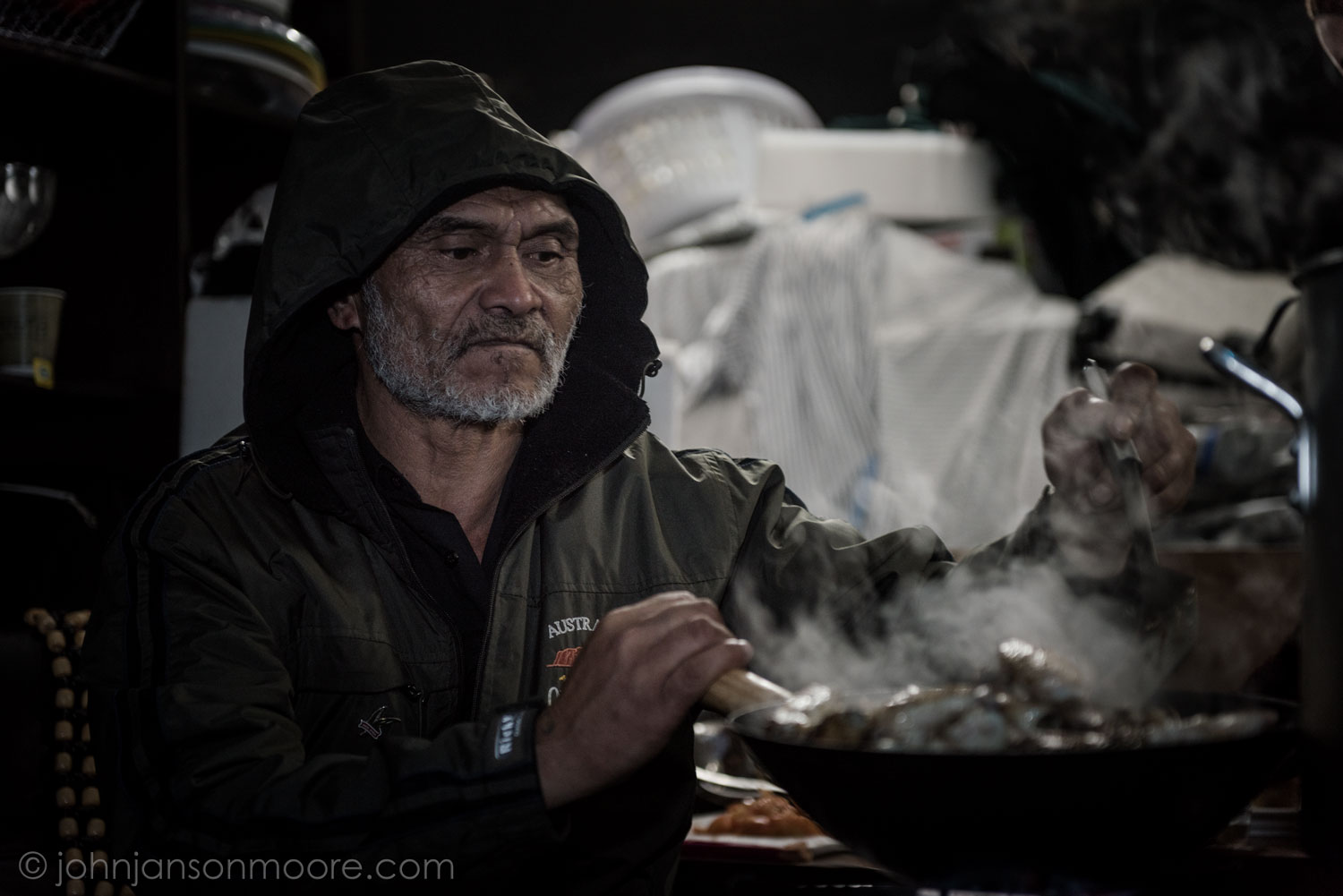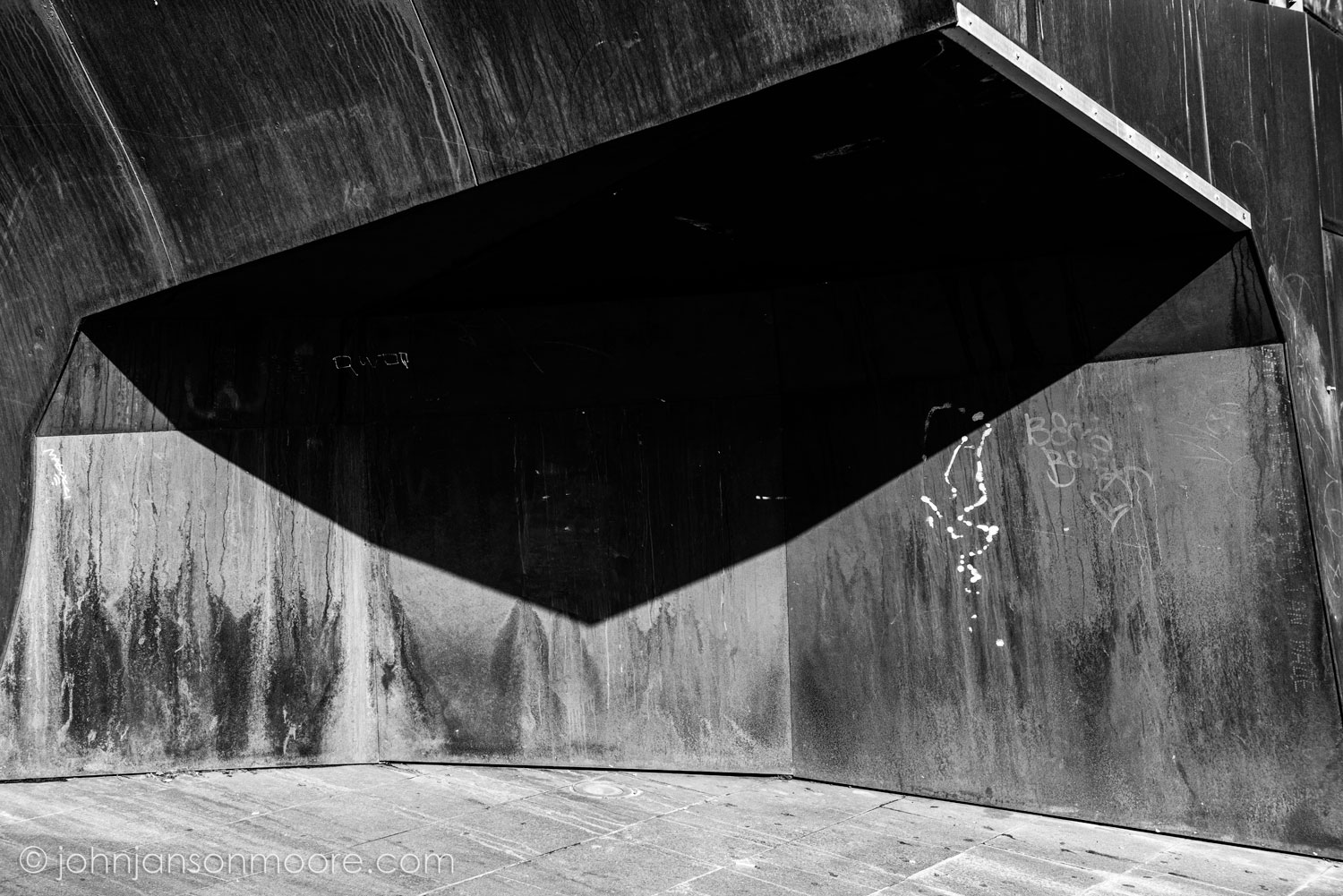Why I Walked Out of the Referendum Council’s National Constitutional Convention at Uluru (Yulara)
Held 23-26 May 2017
Statement by Les Coe, Dubbo Delegate, Wiradjuri Nation:
In early February 2017, I managed to obtain an invitation to attend the upcoming National Constitutional Convention on Constitutional Recognition being conducted by the Referendum Council. This is an issue that I believe is of national importance, not only to Sovereign First Nations Peoples but the whole country, and is an attempt to try and address unfinished business that Australia has left unattended since Captain James Cook first set foot on our shores back in 1770 and shot a Sovereign First Nation Gibba. This set the scene upon which race relation in Australia have been based to the present day.
In 1788, all Sovereign First Nations Peoples lived as a free and independent people with the resources to be able to support and sustain ourselves. We had our own complete systems of Governance, Laws, Culture, Religion and Languages including land management and other resource management systems, built on empirical knowledge acquired arguably over 3000 generations.
Despite me having reservations based on how the Referendum Council was going about organising the Dubbo dialogue (in what seemed to me to be a veil of secrecy), I attended the Dubbo dialogue. I was elected by the other invited attendees to represent the Dubbo dialogue at the National Constitutional Convention being held at Yulara, Northern Territory, scheduled for 23-26 May 2017.
Prior to going to Yulara (not Uluru), I attended a meeting with the Wiradjuri Council of Elders in Wagga, NSW along with my daughter Lynda, who was also elected as a delegate at the Dubbo dialogue. We obtained a mandate from the Wiradjuri Council of Elders to attend at Yulara and speak on their behalf. I sought a mandate from the Wiradjuri Council of Elders because I believe that being elected by a group of 100 invitees at the Dubbo dialogue was an insufficient mandate to be able to speak for 40,000 Wiradjuri people, let alone for all Sovereign First Nation Peoples west of the Great Dividing Range in NSW. What I have just written is no reflection on any of the elected delegates, nor other invited Sovereign First Nation people at the Dubbo dialogue.
I travelled to Uluru by car accompanied by my seventeen-year old granddaughter and a friend who offered to come and help with the driving. I drove to Yulara with some false hope that the long-standing issue I have already hinted at, namely the Sovereignty of the Island Continent known as Australia today, would be openly discussed with honesty and truth.
On the first day of the National Constitutional Convention, I started to have the same sorts of reservations I picked up on at the Dubbo dialogue, which I will address in point form in the body of my paper. What was transpiring at the National Constitutional Convention on the first day was making me uncomfortable and uneasy. By lunch time on the second day, I was utterly disgusted with what was happening. After the resumption of the meeting after lunch, I felt I could not stay in the National Constitutional Convention and still retain some form of self-respect, so I walked out of the meeting feeling ill and sick in the stomach.
As I walked back to the room where I was staying, I was fighting to try and hold down the bile building up in my stomach. When I arrived back at my room, I remembered that my granddaughter said she was going to go for a walk around a very sacred site and had the keys to the room with her.
Unable to get into our room, I walked back to the resort meeting room where the Referendum Council’s farce was being conducted and spoke to another delegate from the Dubbo dialogue. He informed me that delegate from Dubbo and other regional dialogues had walked out of the National Constitutional Convention as an act of protest, and he said that he felt we had to stay together and walk out with them in support of their action. I asked him where the other delegates who walked out went. I found them and stayed with them in solidarity and protest against how the National Constitutional Convention was being conducted.
I have my reasons for why I decided to walk away from the government sponsored National Constitutional Charade held at Yulara, and I now share them with all Sovereign First Nations Peoples to hopefully help assist in making you understand what happen at Yulara and help make your own minds up.
• The National Constitutional Convention commenced with the usual formalities and then the conveners engaged to facilitate each dialogue from across the country, to present the outcomes of each regional dialogue to the meeting. However, when delegates started asking questions they were being shut down by the conveners.
• There was constant chastising of any delegates who wanted to ask questions about issues that they had concerns about.
• Cultural protocols were being used to silence and bully delegates to deter them from asking any questions or stop them from expressing their views.
• Respect was given, but was not reciprocated. Elected delegates from across the country were invited to attend the National Constitutional Convention, but were then not being allowed to represent their region’s views and concerns, unless it was in accordance with the Referendum Council’s position.
• The Referendum Council’s conveners had complete control of the meeting, and governed the whole proceedings with their minds firmly set in concrete. They were changing words and their meanings from those that were spoken in the workshops I attended, on the notes taken on the whiteboard to purposefully distort and misrepresent what was being said by delegates who were expressing their views and concerns, turning words and statements into sedated, pro-minimalist approach to constitutional reform.
• There was no time allocated or reserved for all delegates to comprehend, analyse, consider, review or discuss amongst ourselves the questions being put to us all by the conveners.
• There was no independent, expert opinion of the issues being presented to us (maintaining the status quo).
• There was an endorsement made for the continuation of the Northern Territory Intervention by the convenors and the majority of delegates. A motion was put to the meeting that the Australian government, as an act of good faith, cease the Northern Territory Intervention. The motion was stopped by the convenors when the majority of the delegates and the convenors voted for a continuation of the Northern Territory Intervention. The convenors then said that no more motions would be accepted from the floor. But they then allowed other motions to be made from the floor that suited their closed agenda. (maintaining the status quo)
• The continual time wasting by conveners during workshops in explaining their own positions or the positions of the Referendum Council.
• Delegates were being forced to hastily reach a decision on issues with insufficient time to even consider their positions.
• Conveners had disrespectful attitudes, and openly showed their contempt including aggressive and intimidating treatment of elected delegates in the workshops.
• The conveners were altering and paraphrasing opinions or concerns raised by the regional delegates and were actually changing their words to reflect a Referendum Council friendly position by changing delegates’ statements into meaningless gibberish.
• When I was finally given the opportunity to speak during the fast forward workshops, I said, “We need some form of protection against Governments, their agents and institutions excesses and attitudes towards us, but if that protection diminishes our sovereignty in any way then we are not interested. Our sovereignty lives and breathes, because they have not exterminated us. What I want is the same thing that governments want and that is certainty!”
• What I said above in a workshop was changed by the conveners when they presented workshop findings when reporting back to the whole Convention. My statement was then changed into something like, “We need protection, pause mmm ha government mmm ha pause ha excesses, Les Coe.” Making my statement sound like nonsensical mindless rubbish.
• Conveners had voting rights but were not elected to represent any region or people other than themselves and the Referendum Council’s position, which was a direct ‘conflict of interest’, in my view.
• There was no declaration made about any ‘conflicts of interest’ by the Referendum Council members, their paid employees, consultants, advisors or conveners.
• There was no time allocated or reserved for the delegates to have any open discussion or debate on any of the issues. From what I saw there was no debate and very little discussion.
• It appeared to me that there was an expectation that delegates were only there to be used as a rubber stamp for the only road map put on the table. I see this as a map with one lane one way road going to places we have been before, and eventually end up going nowhere? (maintaining the status quo).
• From my perspective, the secrecy surrounding the whole process was highly questionable, as was the dialogue held in Dubbo from where I was elected. The way that this whole process was being conducted and controlled indicated to me that it was fraudulent and it was going to be forced upon Sovereign First Nations and peoples, whether we agreed with it or not (maintaining the status quo)
• The way the National Constitutional Convention was being conducted indicated to me that outcomes were pre-determined and already bedded down (maintaining the status quo)
• The way the process was being conduct convinced me that the Referendum Council and their paid conveners were going to ensure that the only outcome to come out of the National Constitutional Convention in Yulara was the complete endorsement of the Referendum Council’s road map.
• There was an expectation of compliance by the delegates at the Convention to simply comply with the process and the prearranged outcome, without addressing the underlying issues on the agenda, such as First Nations Sovereignty, and how constitutional recognition reforms impacts on our Sovereignty.
• 10 years researching and planning to comply with a well-hidden Government agenda in maintaining an unlawful colonial system of governance and control over Sovereign First Nations Peoples by rigidly standing blindly by a colonial skeletal framework that is clearly riddled with cancer which is not to be disturbed, contested or altered in any way, shape or form and protect it at all costs despite the disease being terminal (maintaining the status quo).
• Overly paid lawyers and advisors engaged by the Referendum Council produced the one and only road map, under the agenda of the Referendum Council Co-Chairs Mark Liebler and Pat Anderson, Noel Pearson, Megan Davies and the Australian government. This was presented at the National Constitutional Convention at Yulara as the only viable option.
• The well sponsored government created conservative Aboriginal elite’s voices as being the only voice of all Sovereign First Nations Peoples (maintaining the status quo).
• Aboriginal people with vested interest in maintaining a minimalist approach to Constitutional reform with the black money stream firmly under the control of government created conservative Aboriginal elites (maintaining the status quo).
• Aboriginal people representing their employer’s organisations, and the established order of the ‘Aboriginal problem’ involved in the latest government experiment, were ensuring that their gravy trains keeps delivering their gravy with all the trimmings. Thereby continuing the ‘terra nullius’ of all that is Sovereign First Nations (maintaining the status quo).
• No truth and justice was on the agenda - only more lies and deceit (maintaining the status quo).
• You could smell what was going on; the resurrection of an ATSIC type organisation with only an advisory role to government, thereby providing an advisory body with a get out clause: “The Government would not accept our advice”(maintaining the status quo).
• The question of a ‘treaty/treaties acknowledge First Nations Sovereignty was going to be put on hold and deferred, until it went away or died (maintaining the status quo).
The above are some of the reason why I walked away from the Yulara Convention. It has taken me this long to provide some answers because I was feeling too ashamed to even admit I was involved in any of it. I approached the opportunity with some hope - but any hope I had died at the Yulara Convention. Why I call it the Yulara Convention is because that is where this charade and junket was held. It had nothing to do with any ‘Statement from the Heart’, as the Referendum Council is now calling it. It was a very big heap of guuan?
There is a lot more to this yarn, but I also believe that each delegate should give their own reasons for walking out from the Yulara Convention. What happened after a group of elected delegates exercised our Sovereign right and walked out is another story and needs to be told soon.
All I can say for now is if what I witnessed over the last few months of this new farcical government experiment called constitutional recognition, then we as a people are being looked upon as being complete imbeciles by the Australian government, the Referendum Council, their conservative Aboriginal elites, and anyone else associated with their lies and deception. If anything, what is about to transpire will raise an expectation of hope for the future, but that future will never be realised by Sovereign First Nations Peoples, and the realisation itself will not emerge for years to come.
I for one have no intention of joining the ship of fools at the National Constitutional Convention that is about to sail away, and leave the rest of us stranded, constantly being circled by a ravenous, insatiable evil.
Always was
Always will be
Aboriginal Sovereignty
Les Coe
Aboriginal Embassy
1 King George Terrace
Barton, ACT 2600
30 June, 2017





